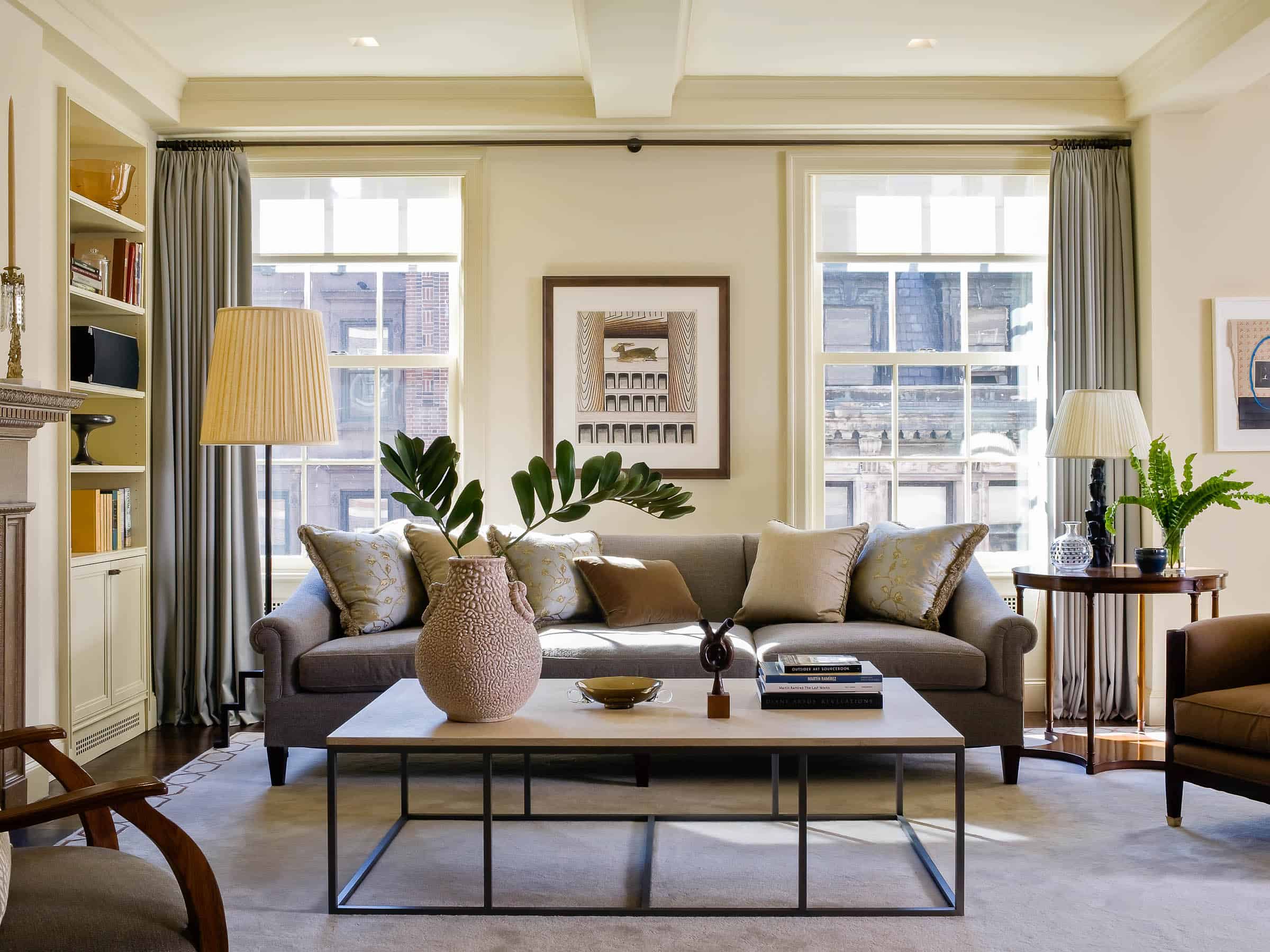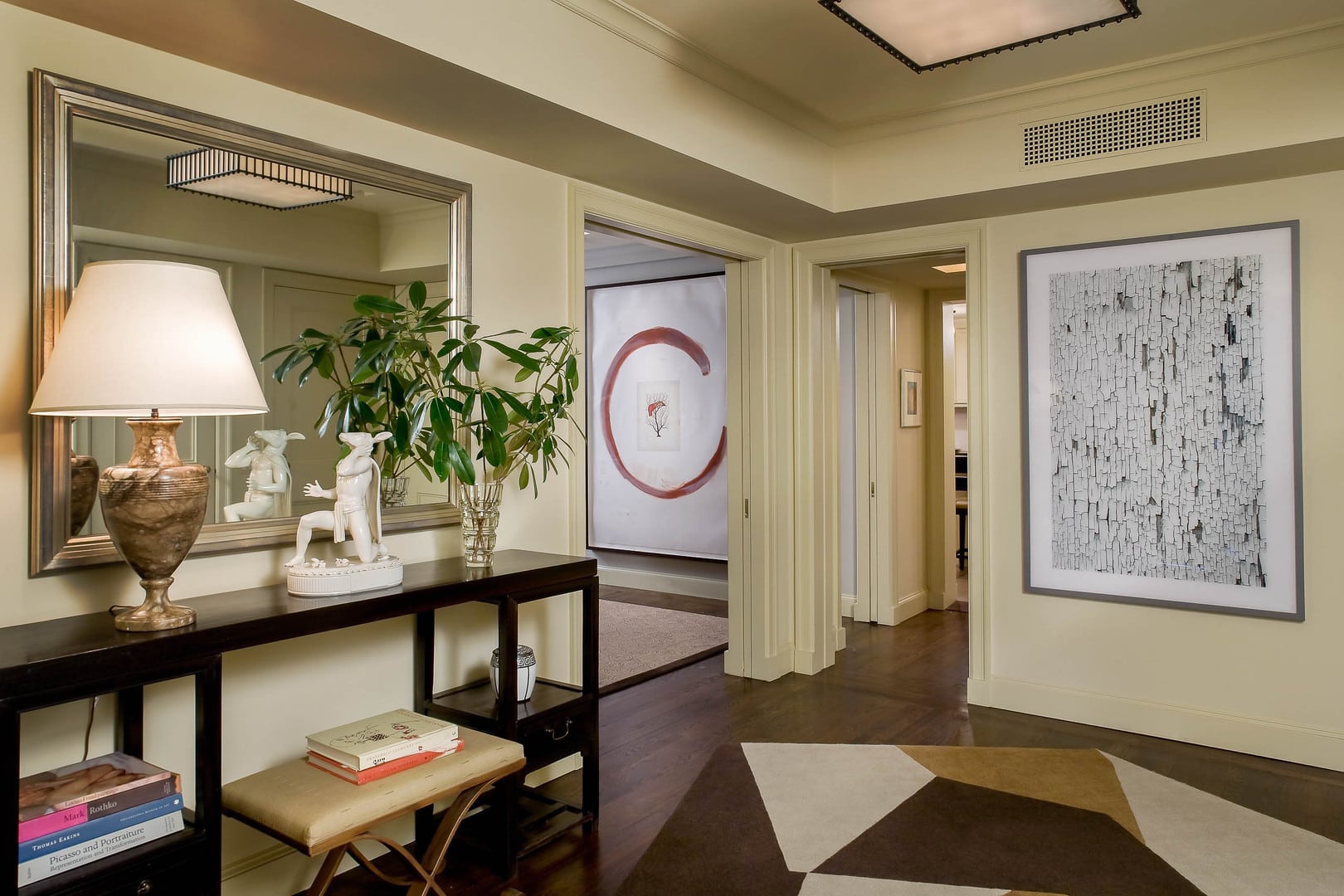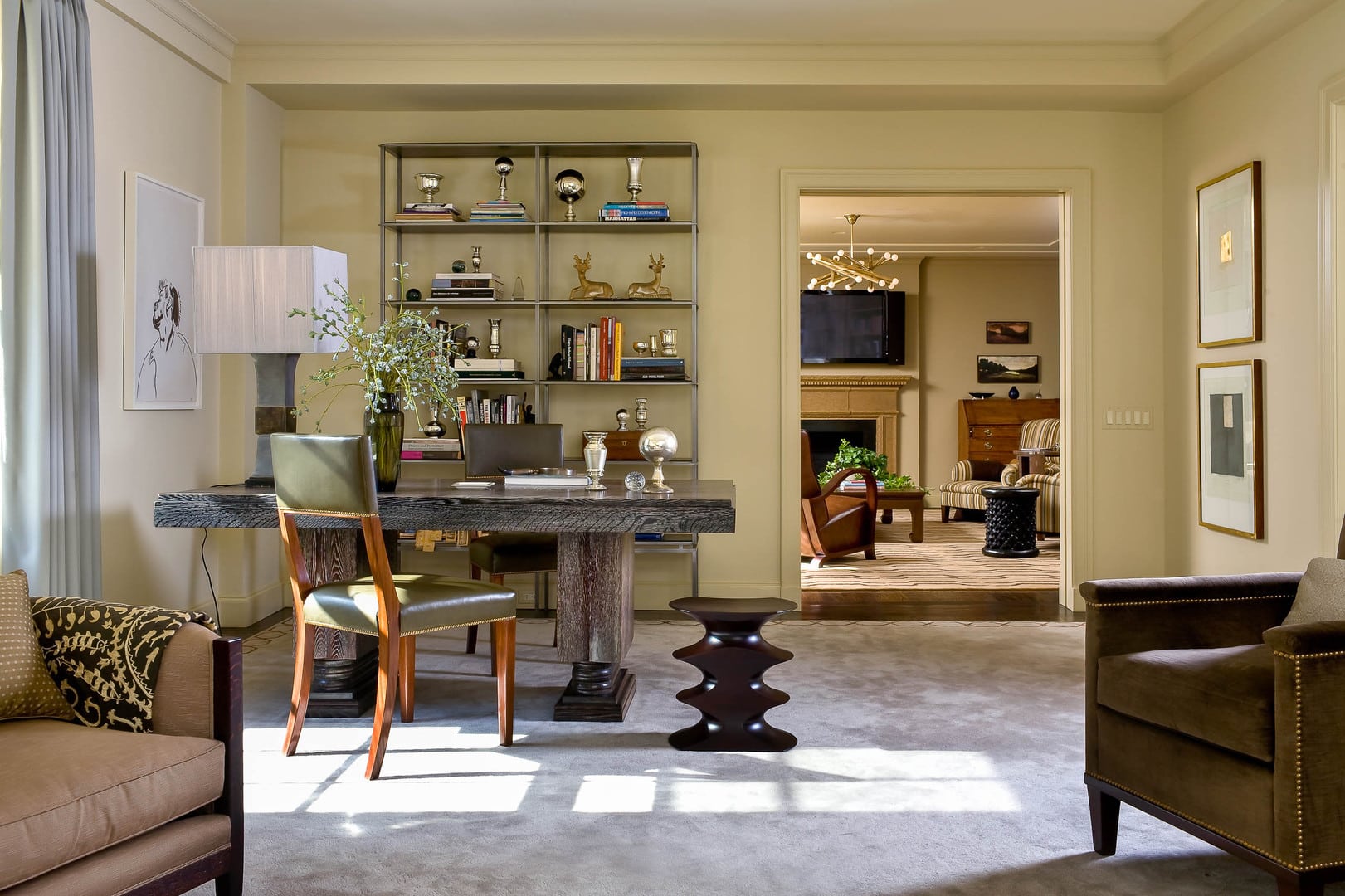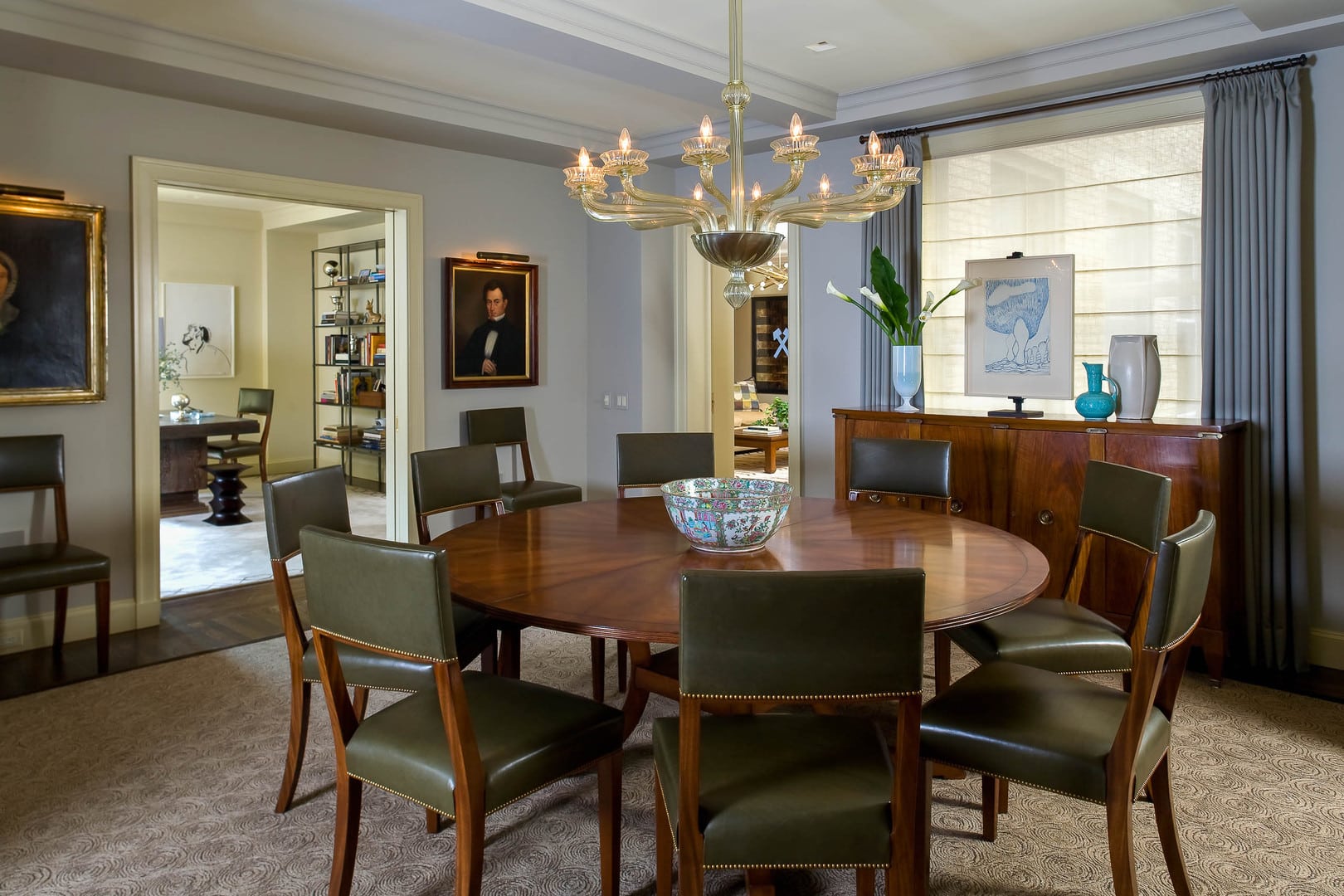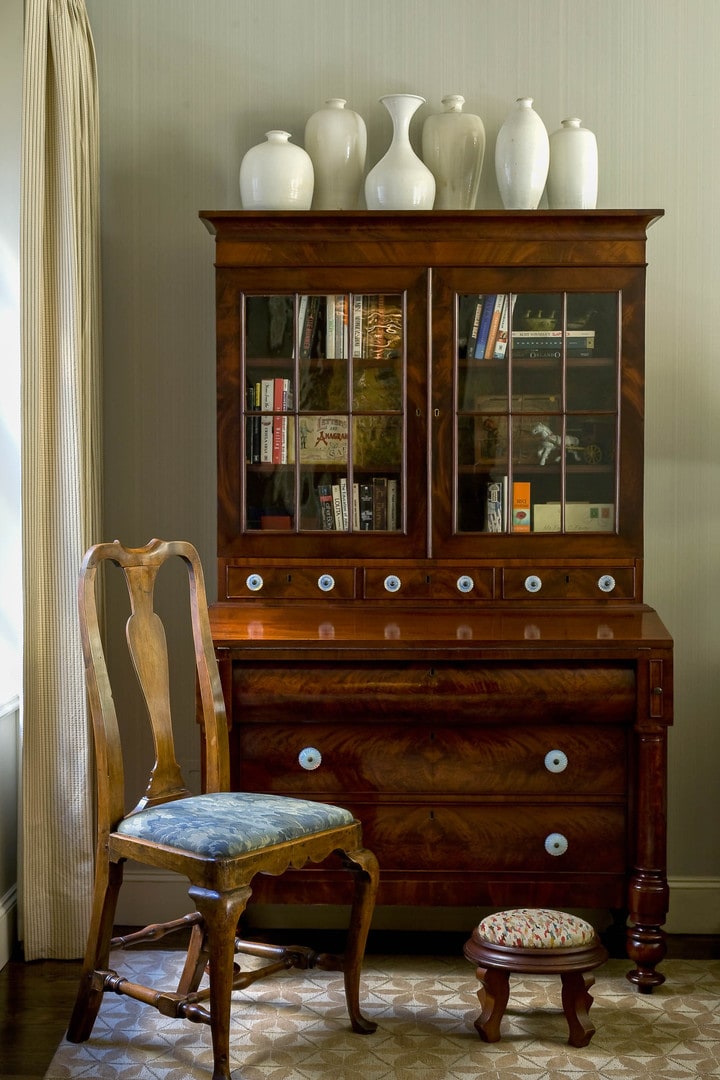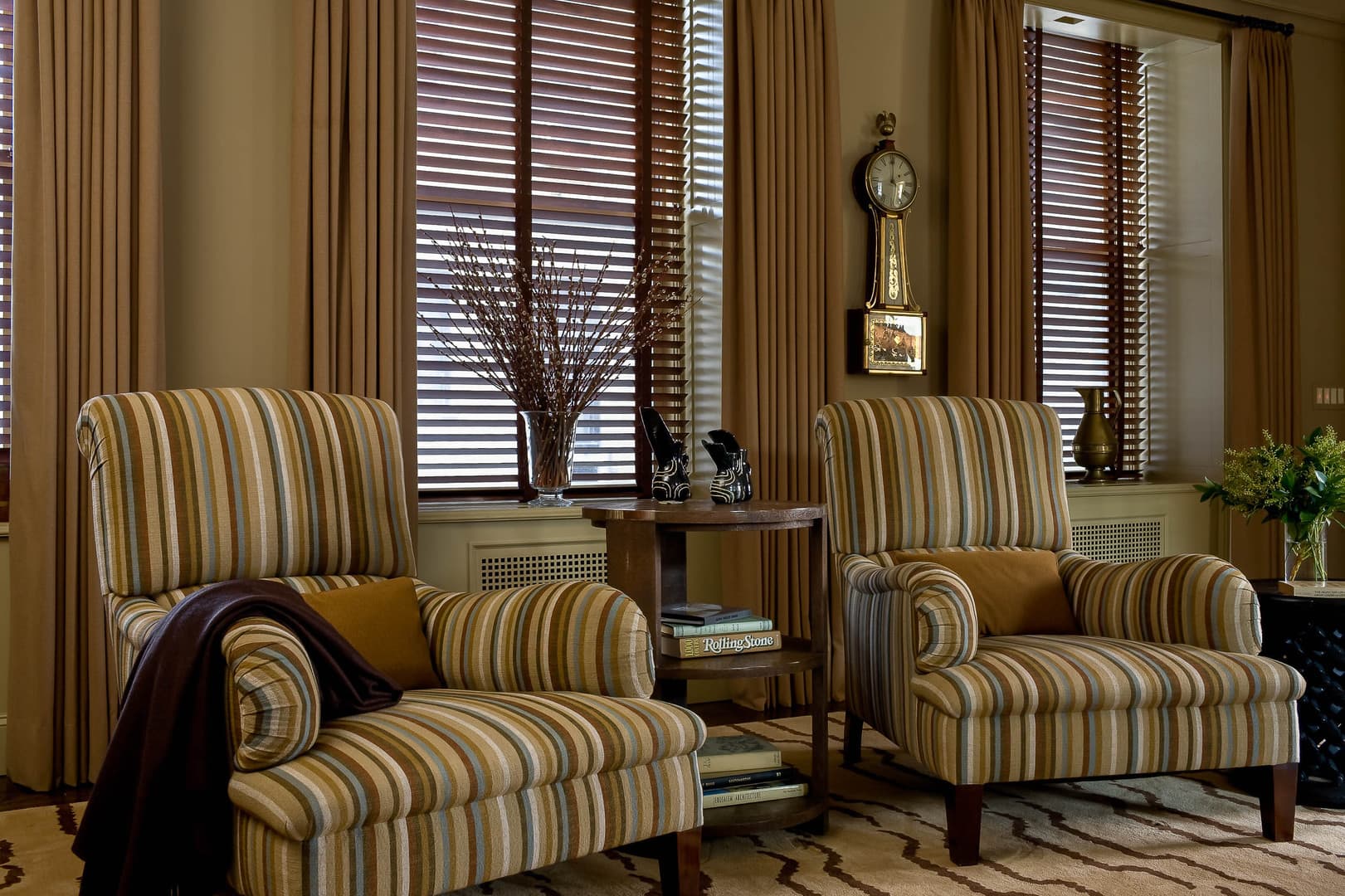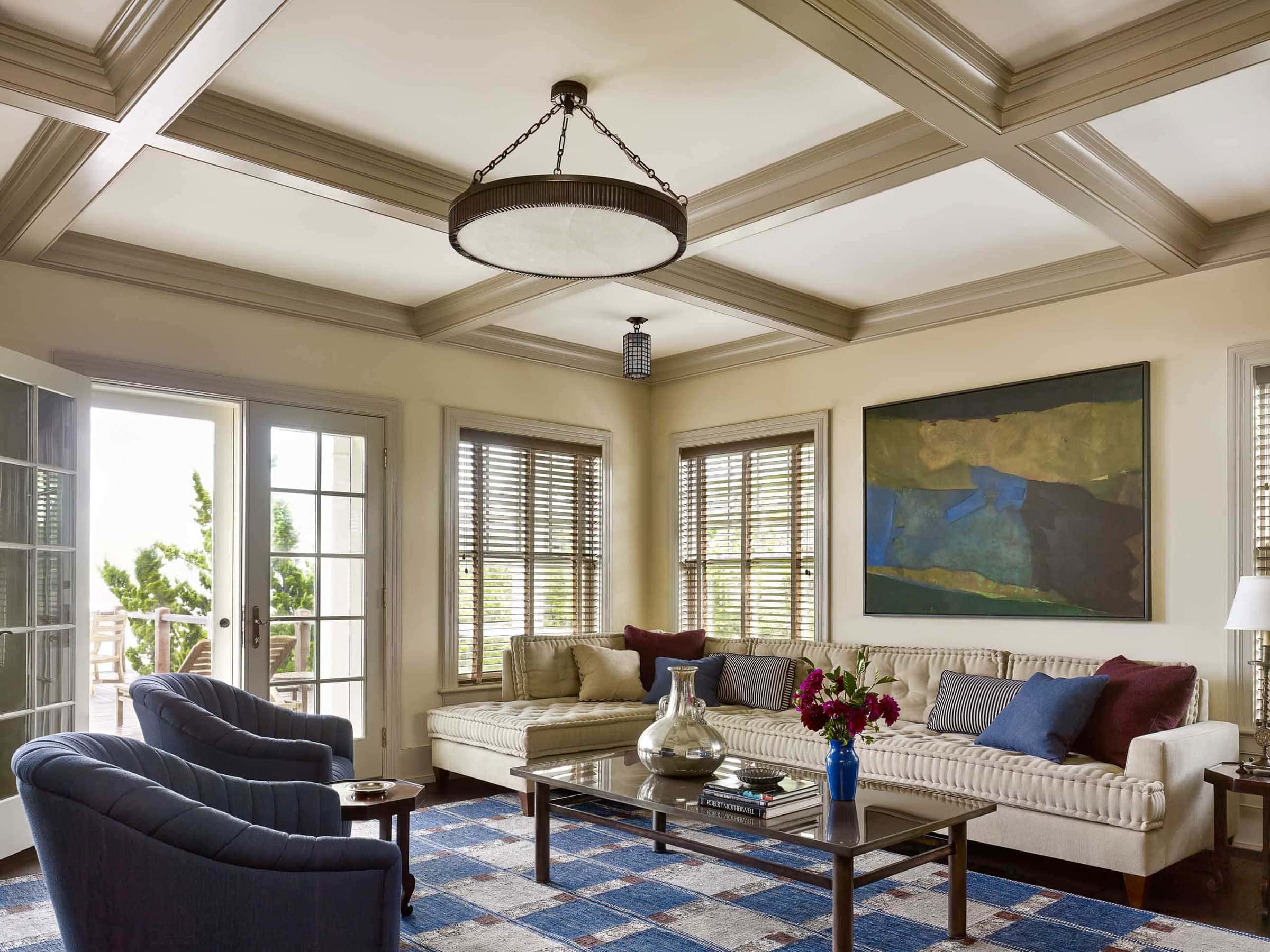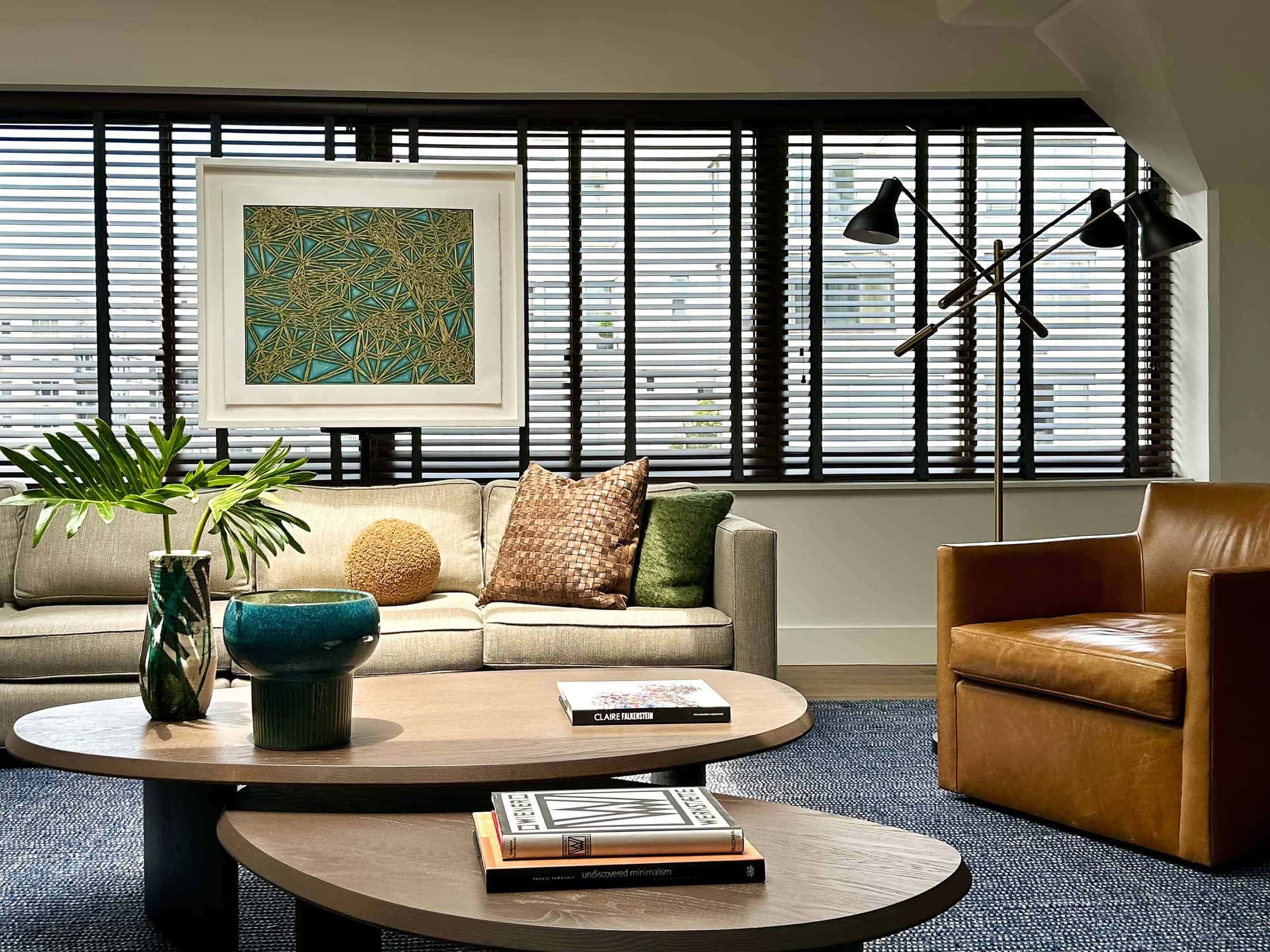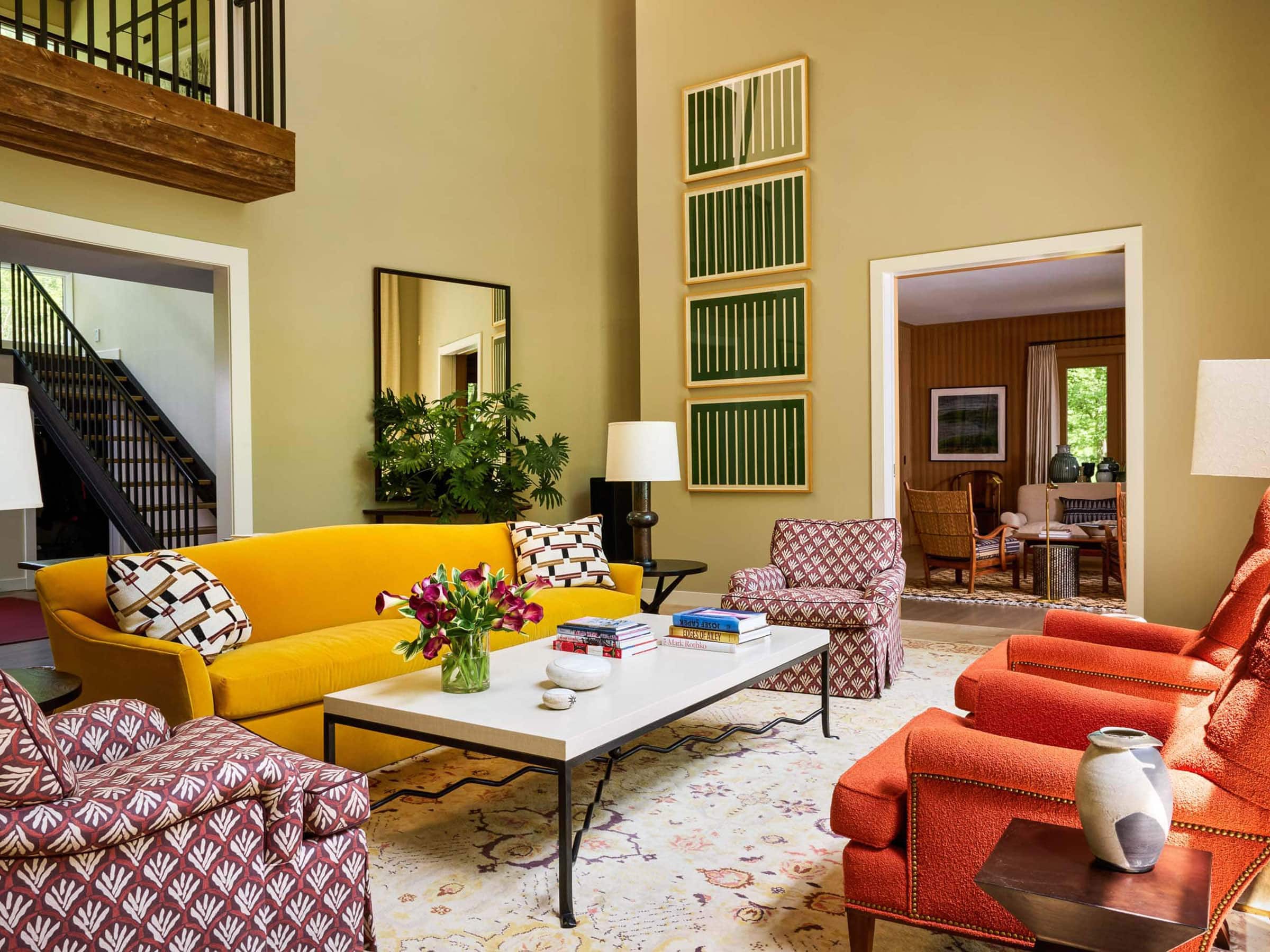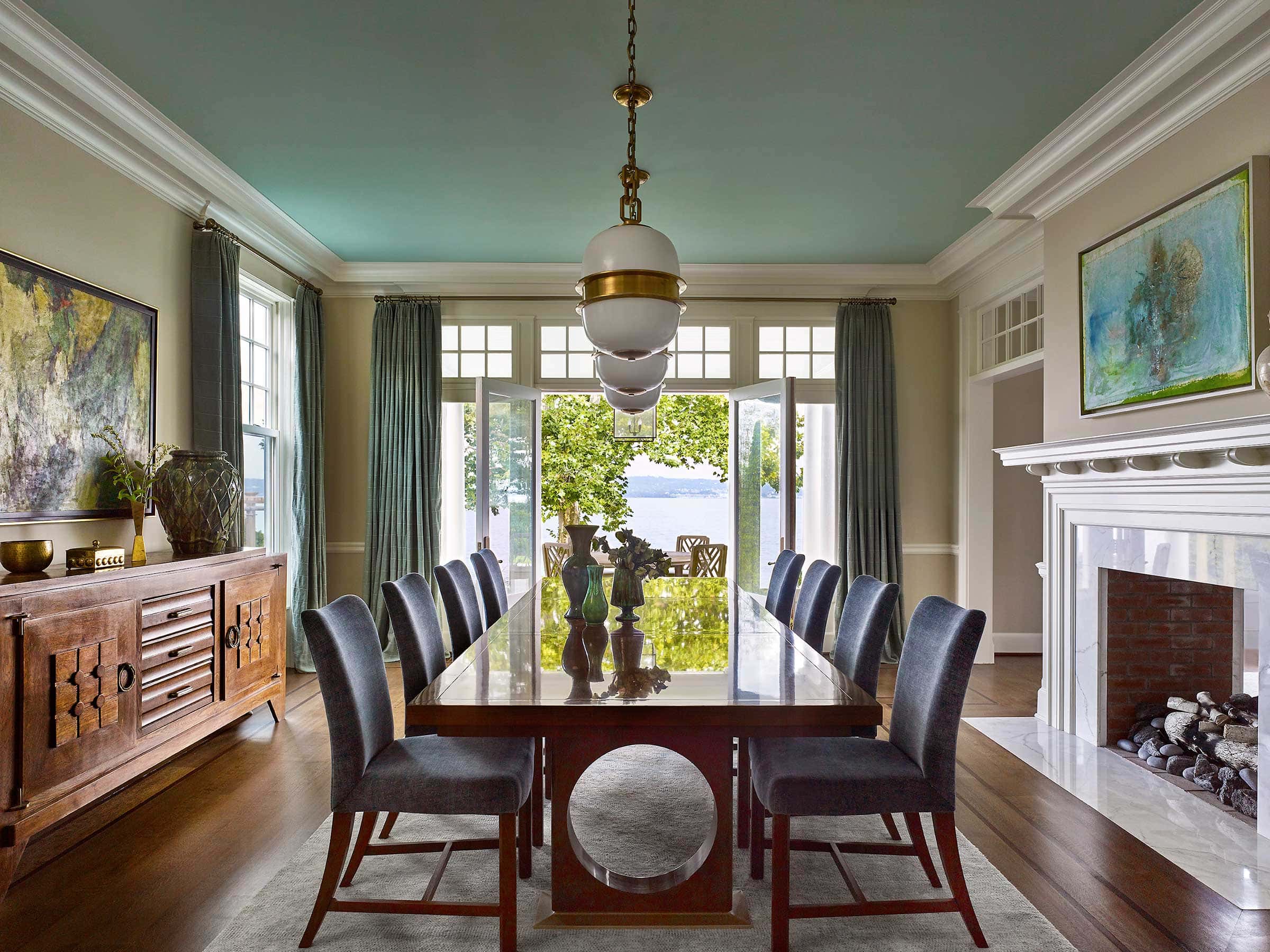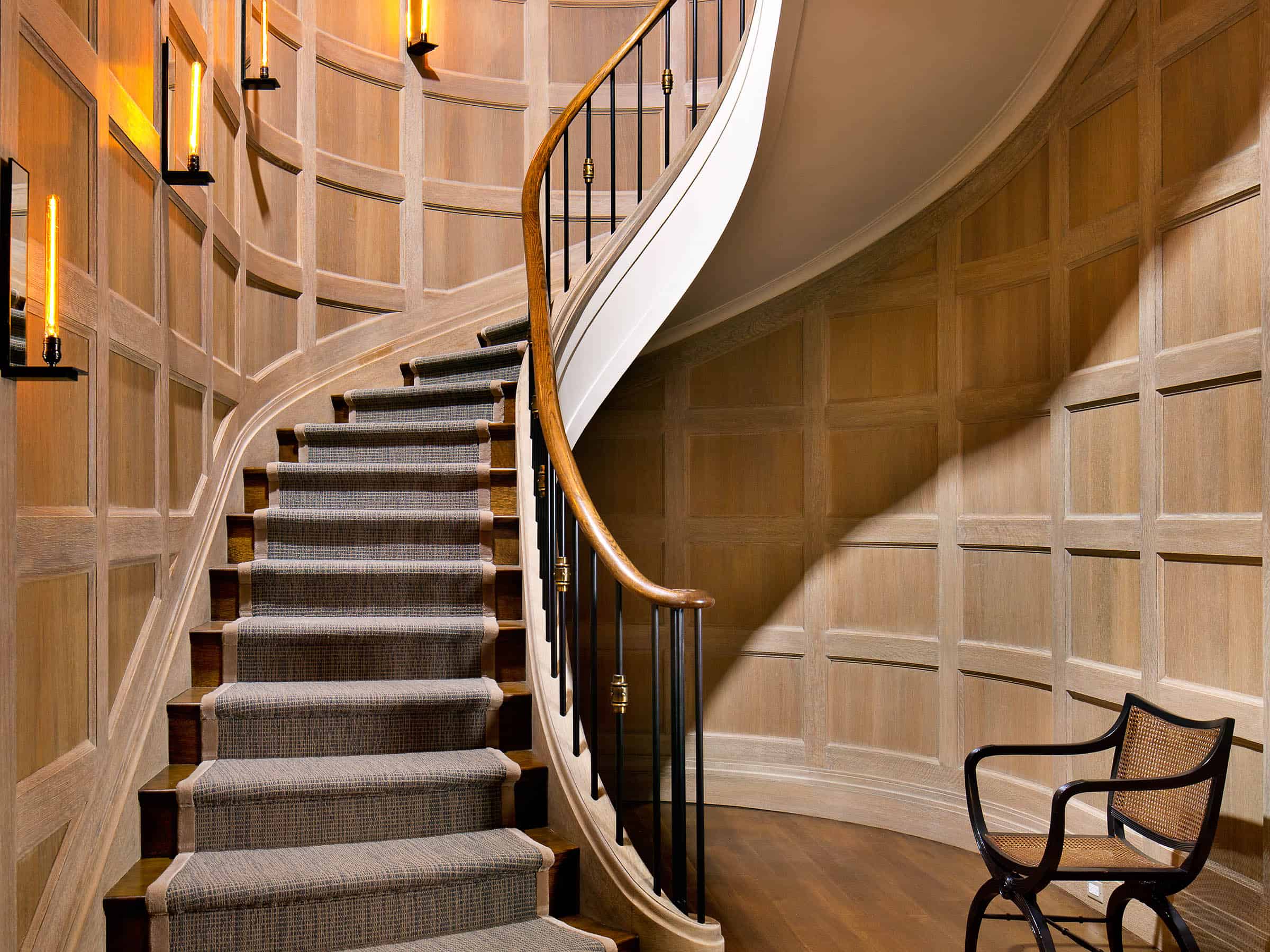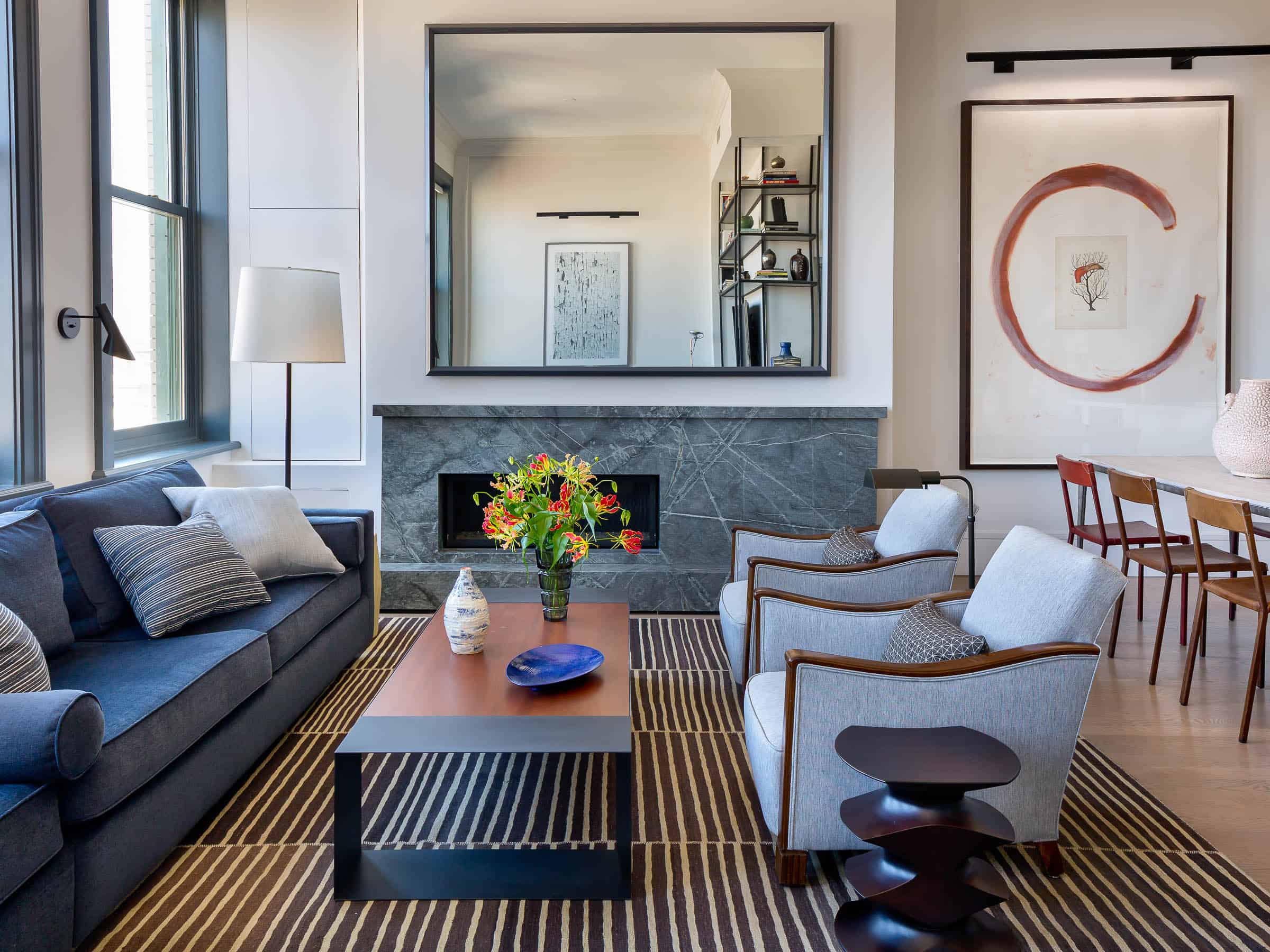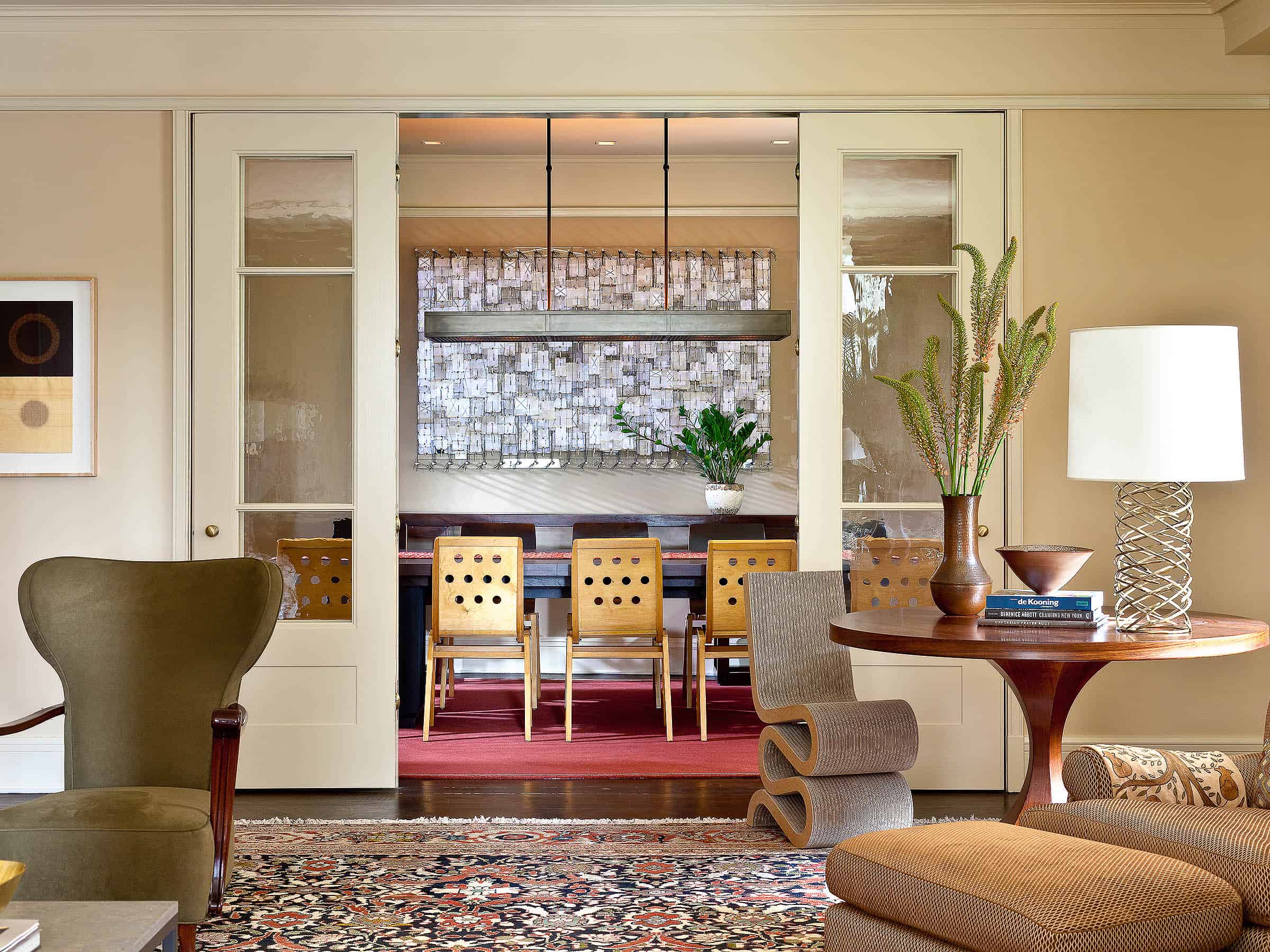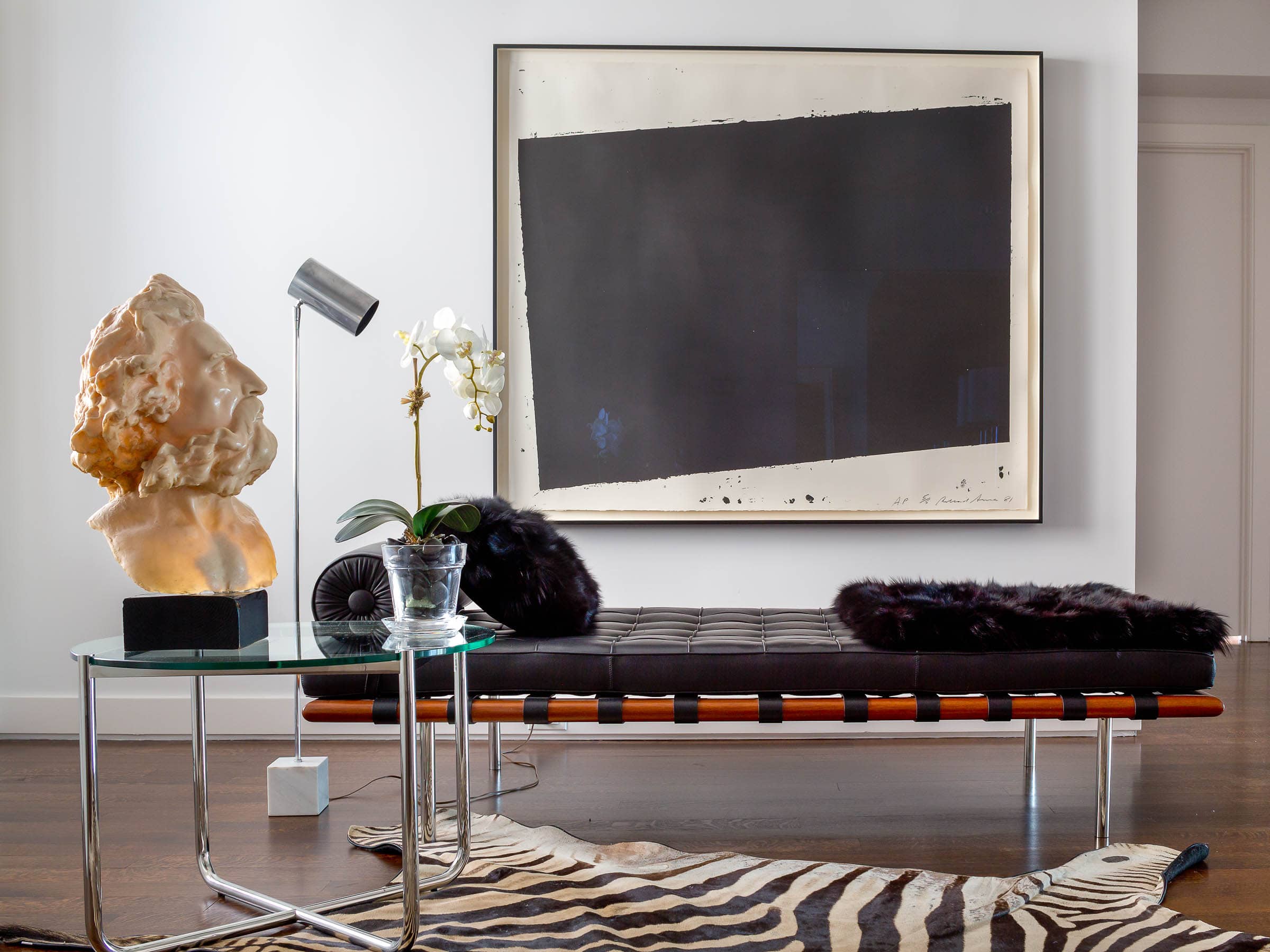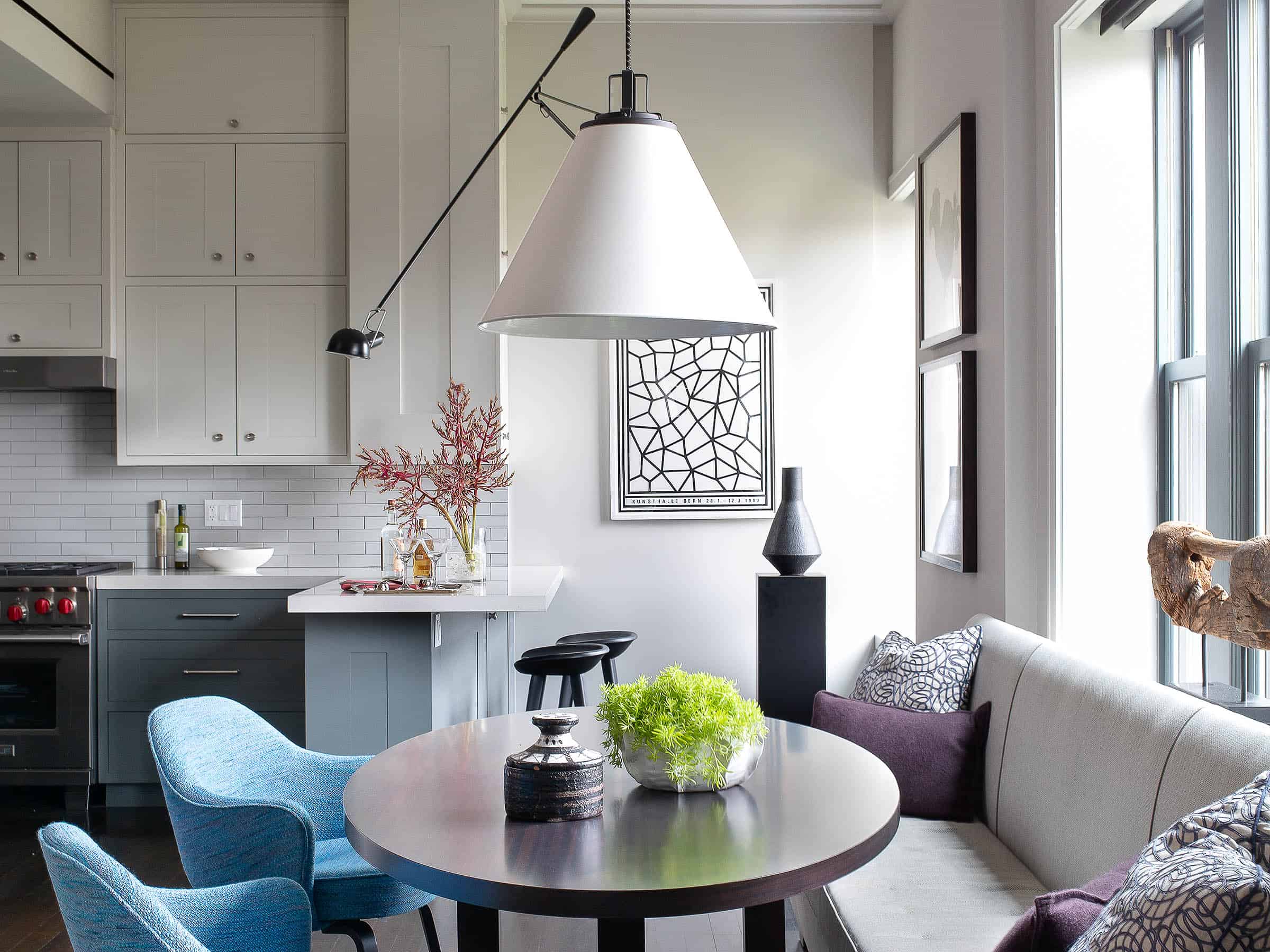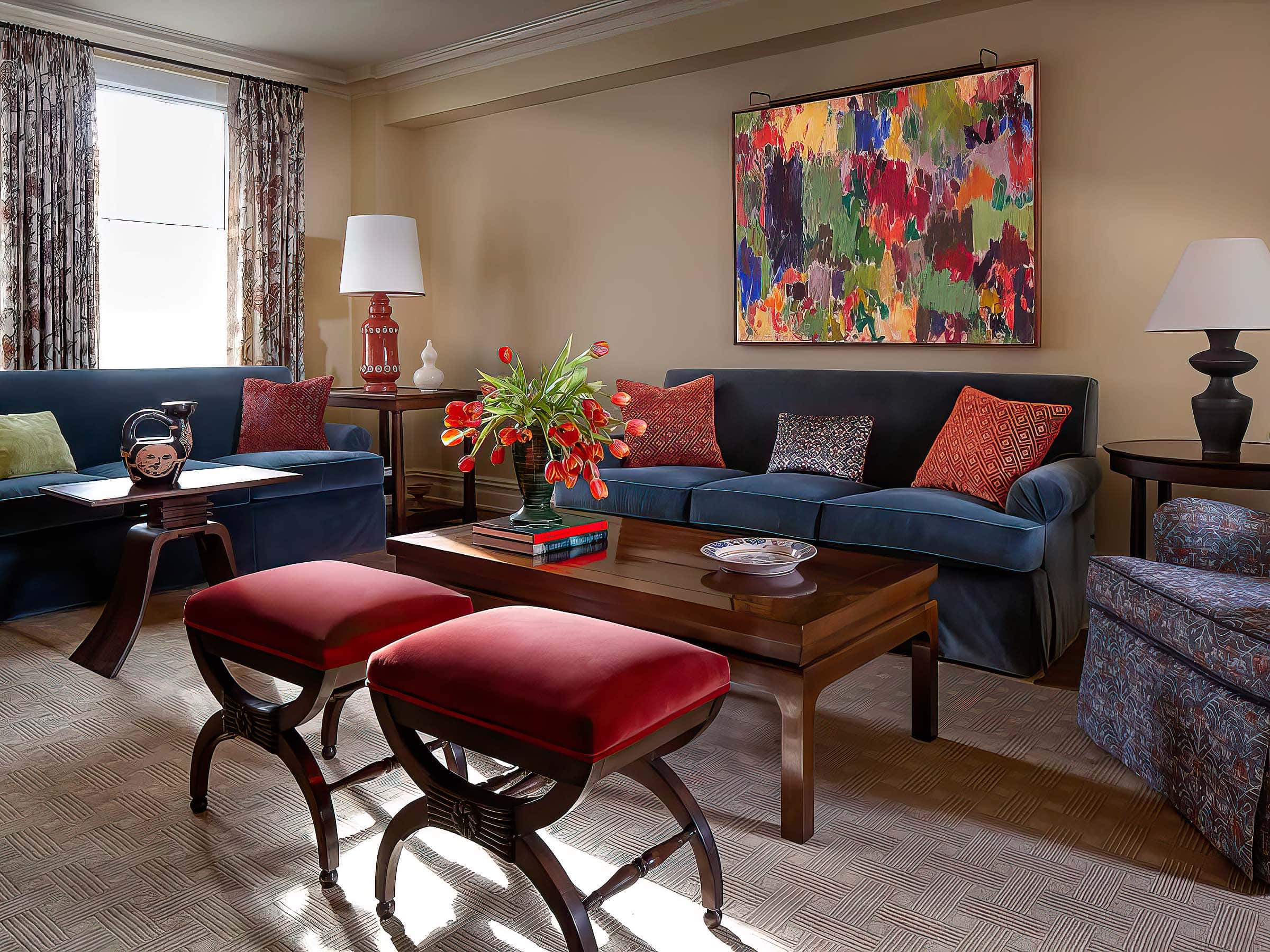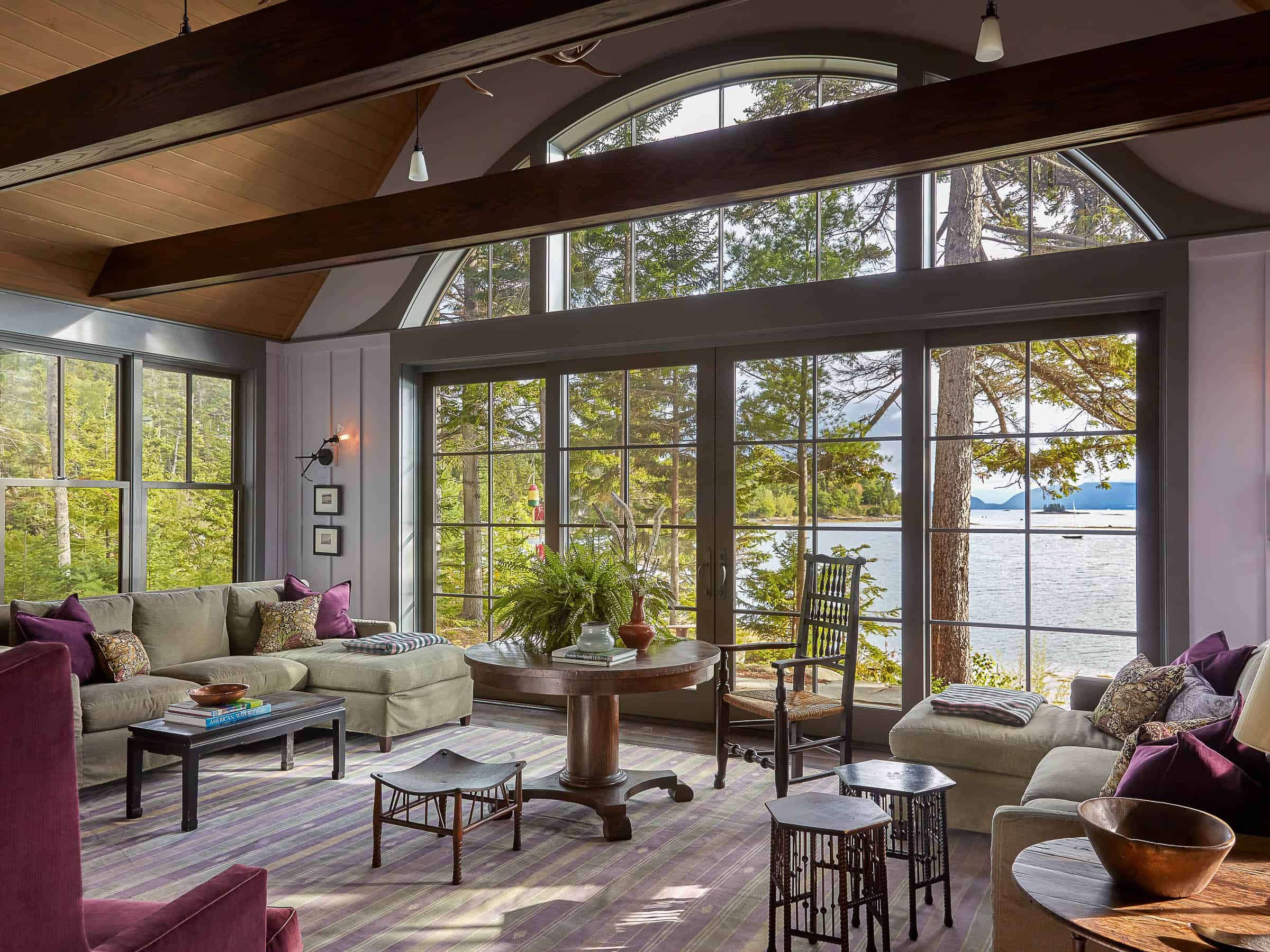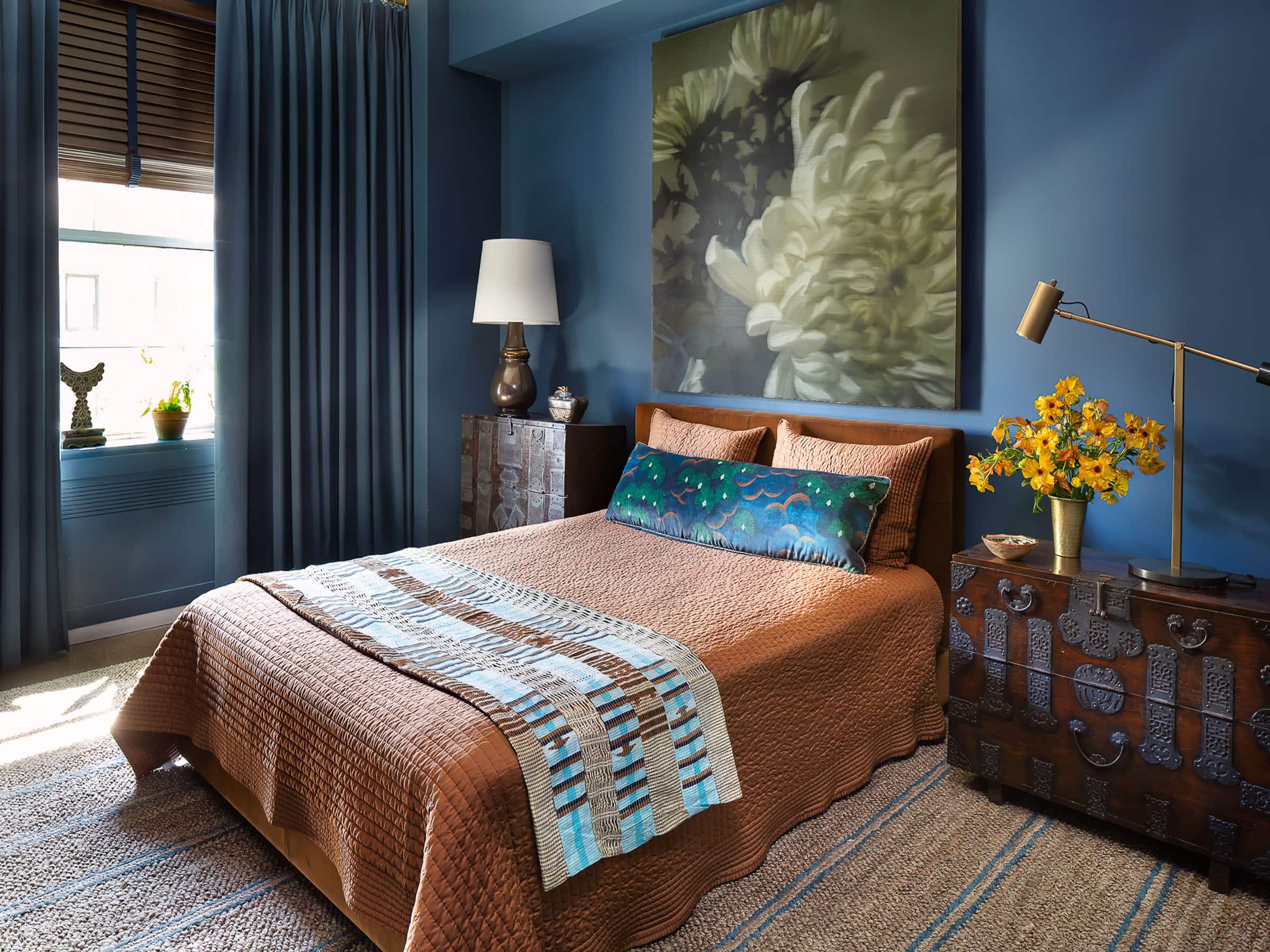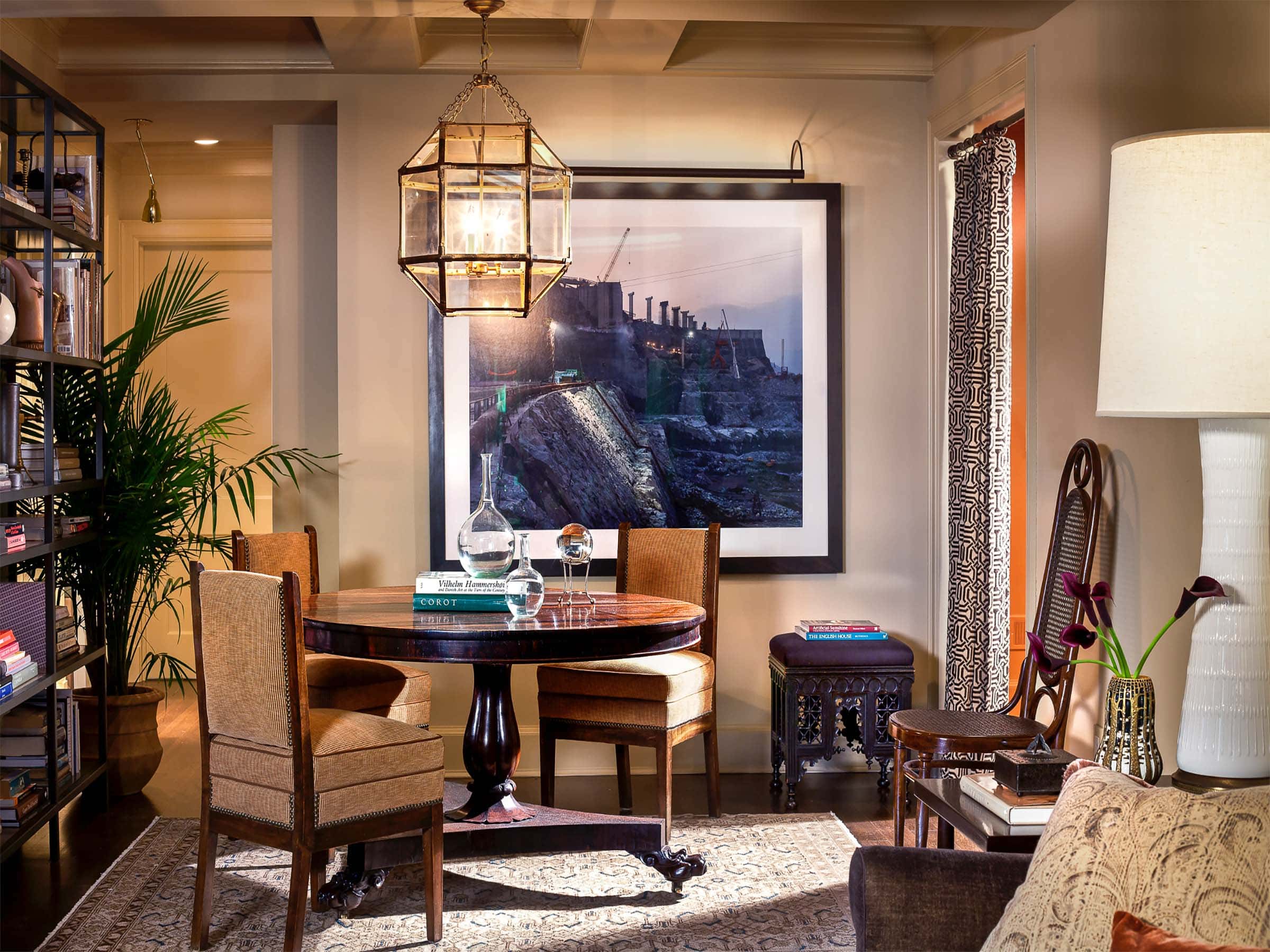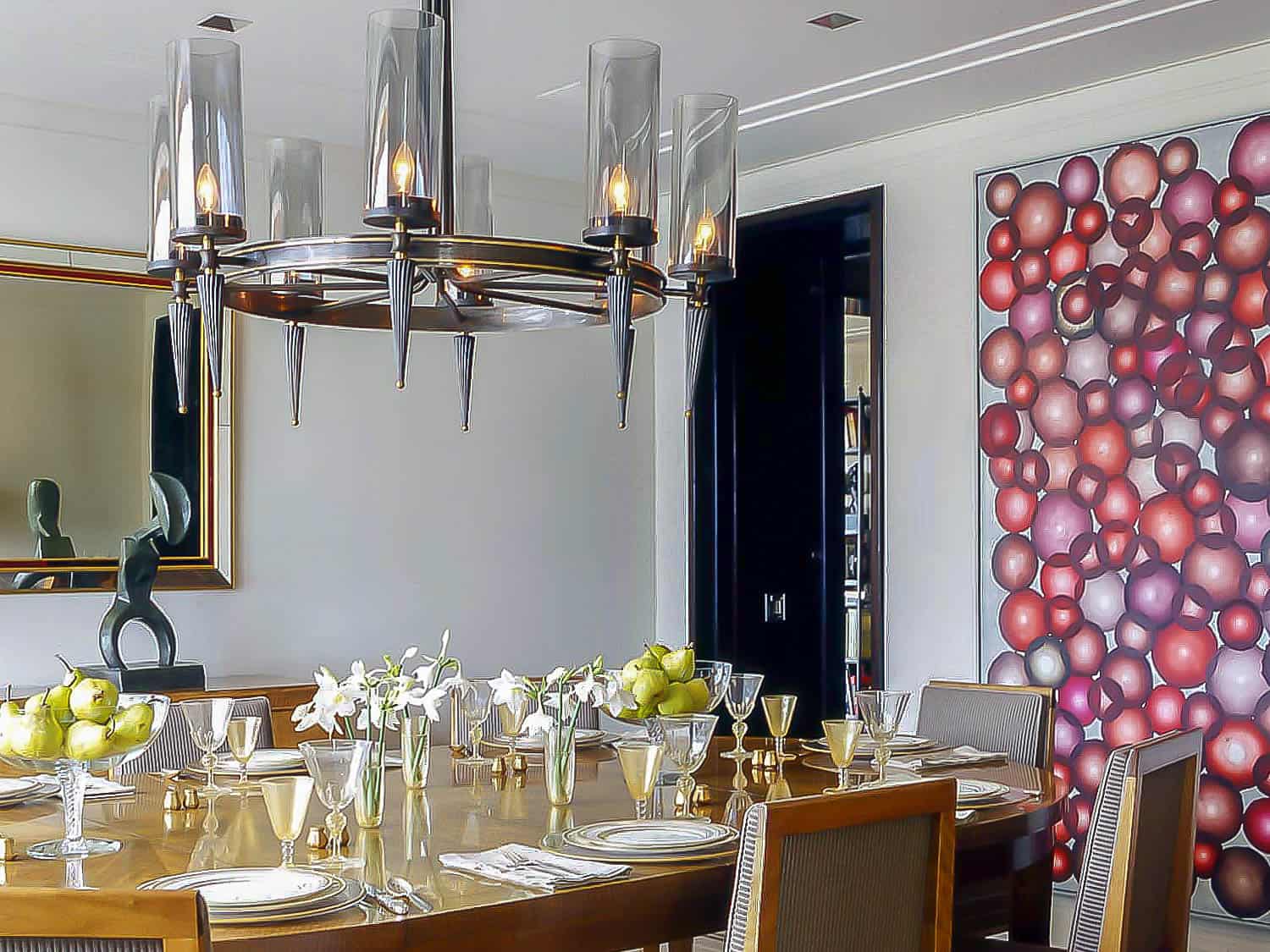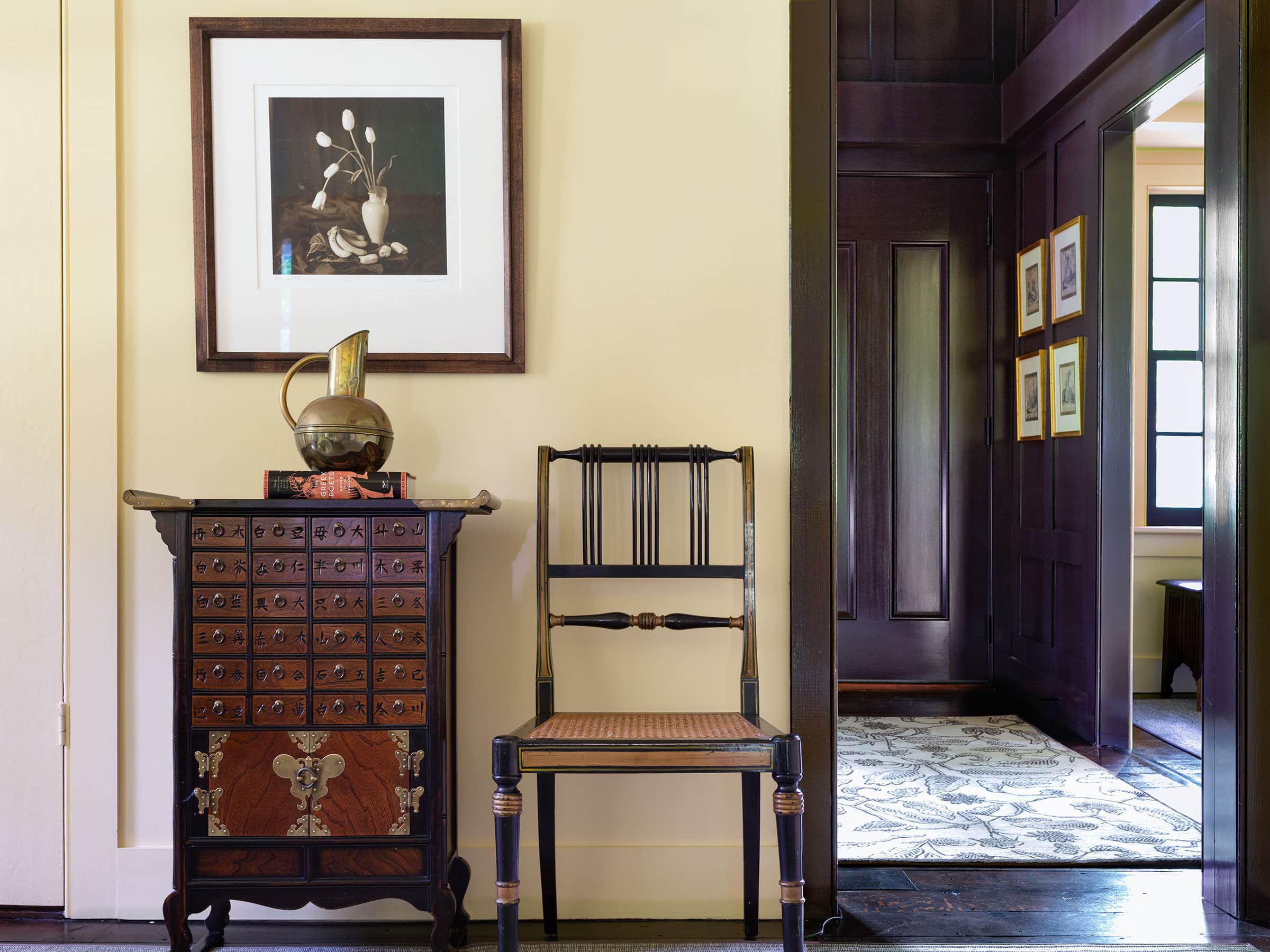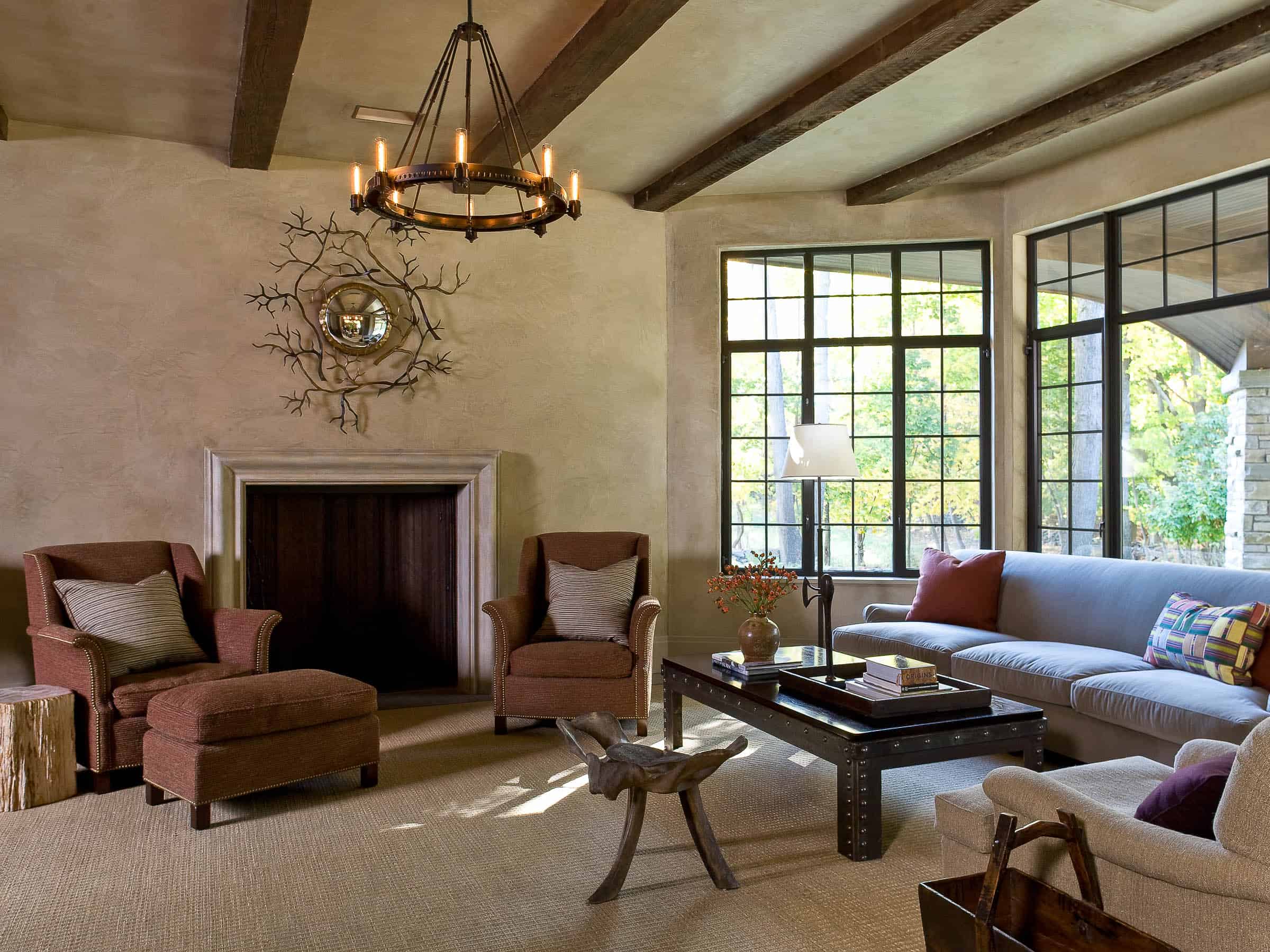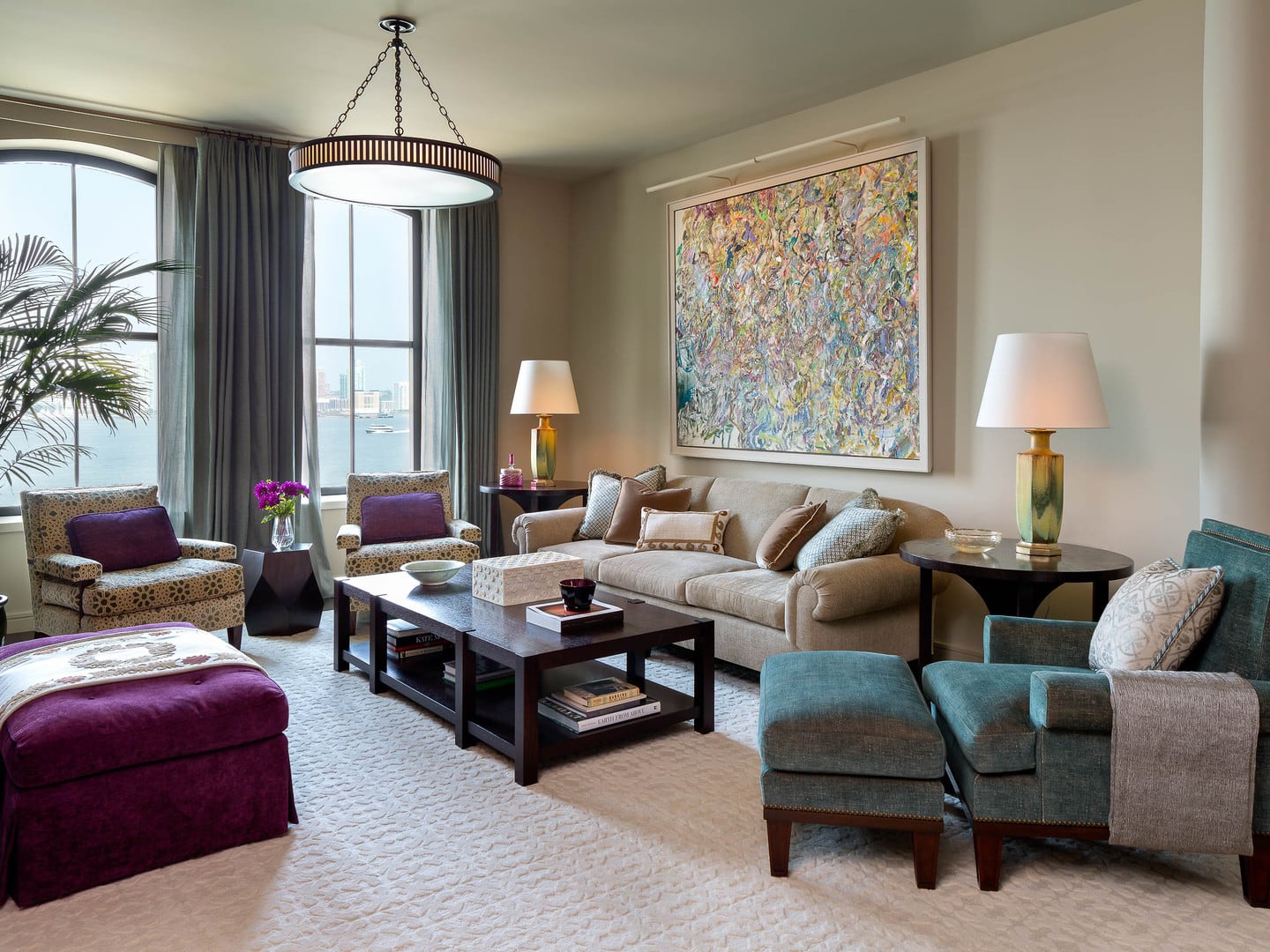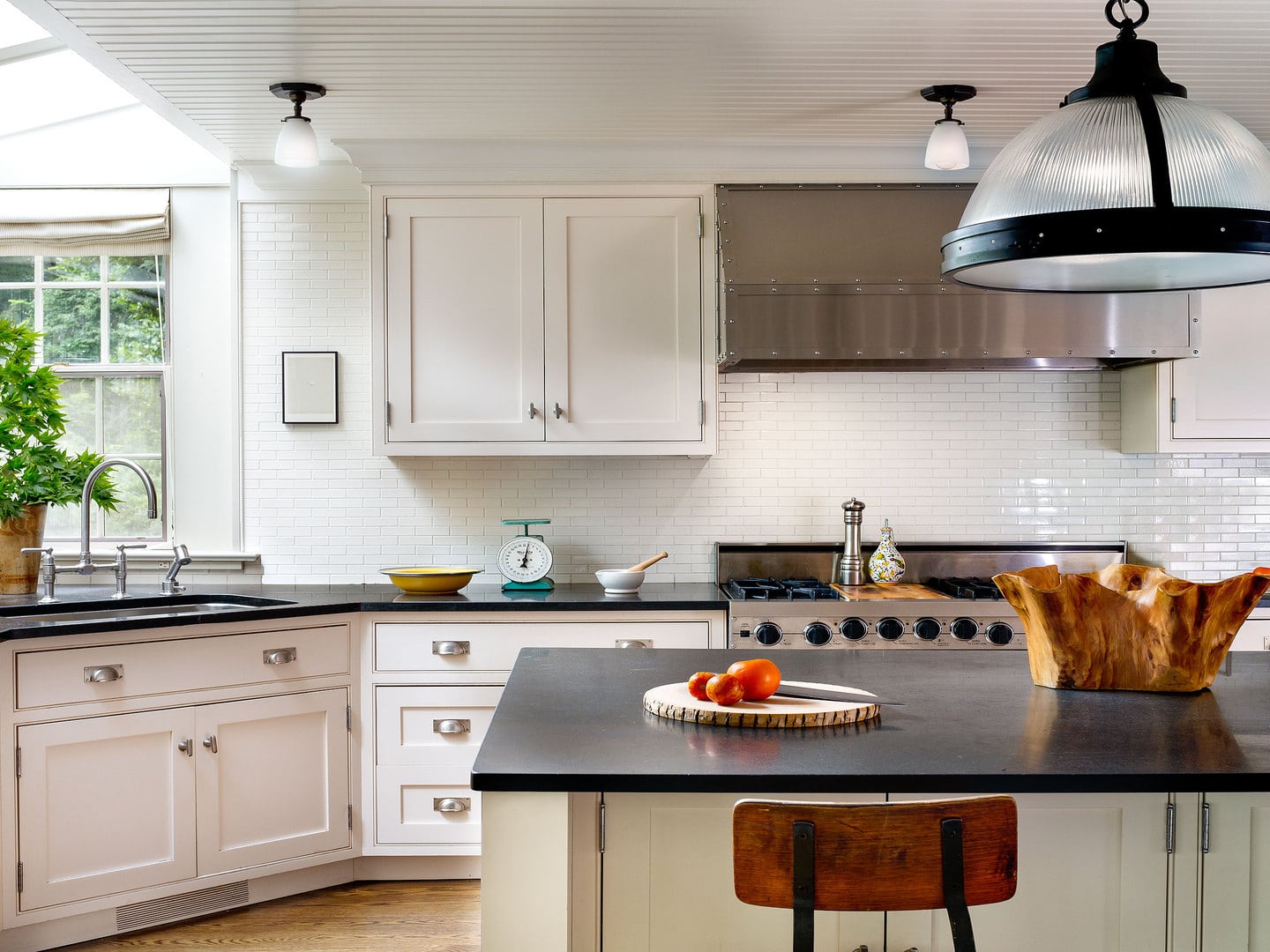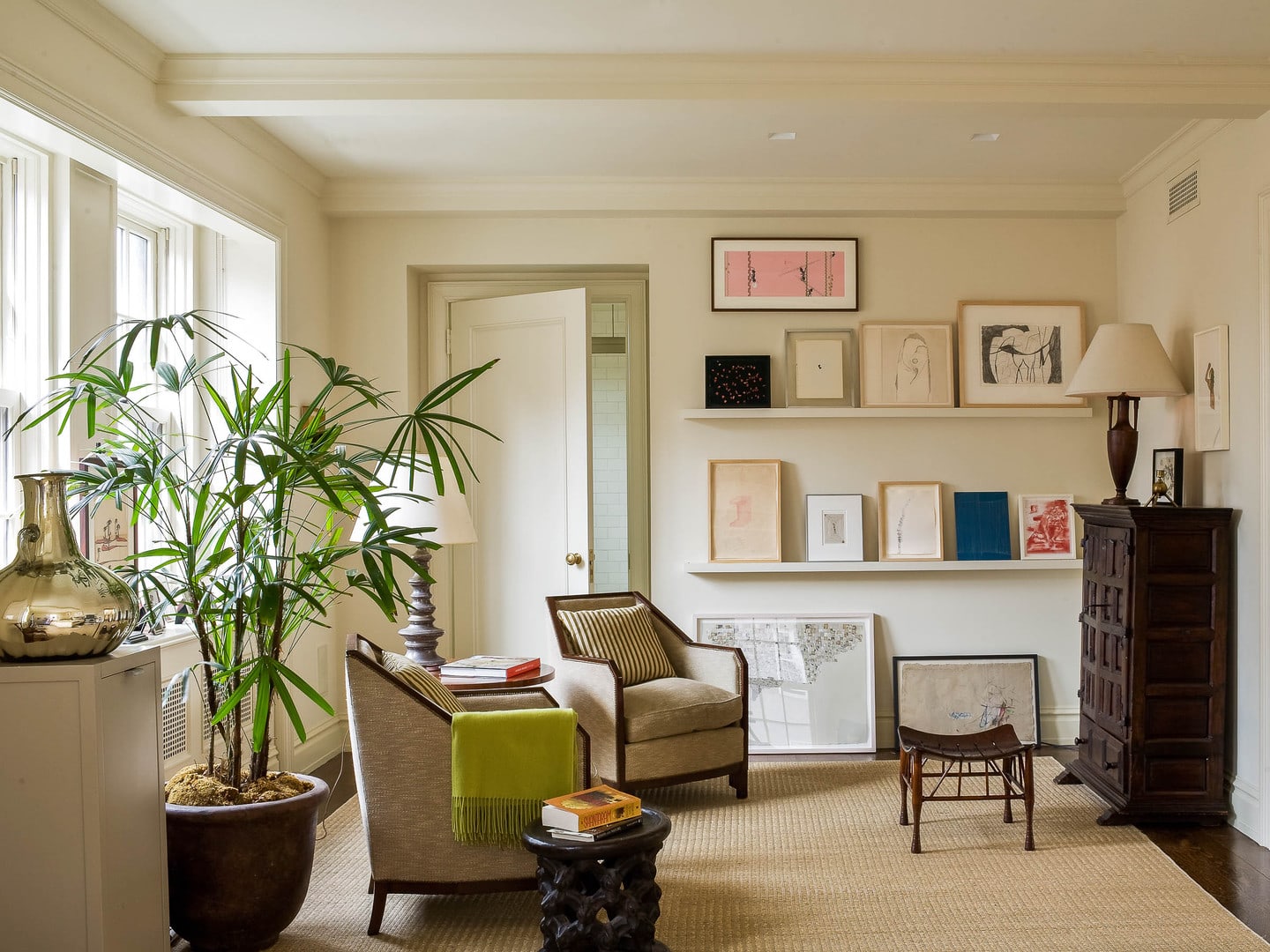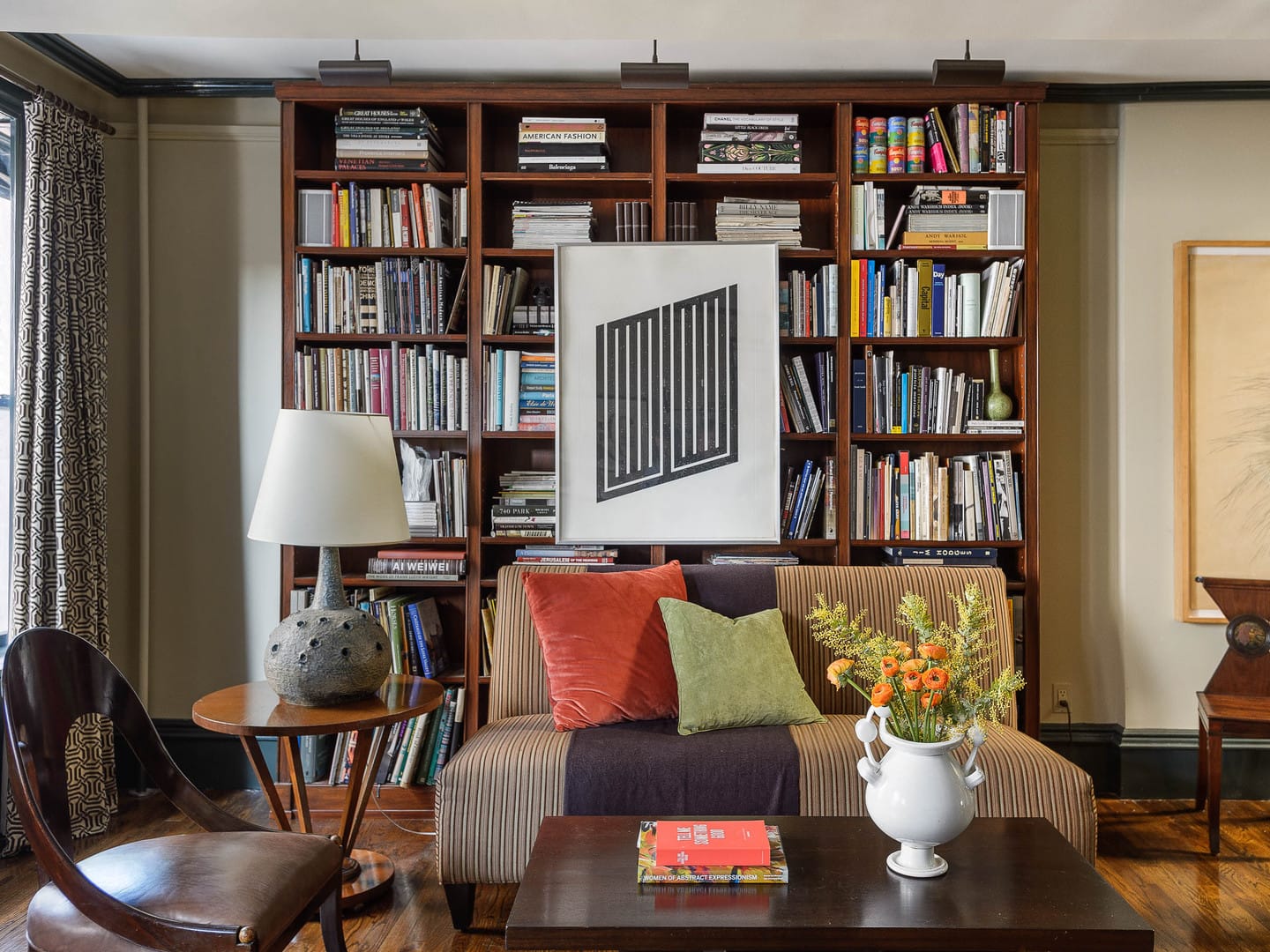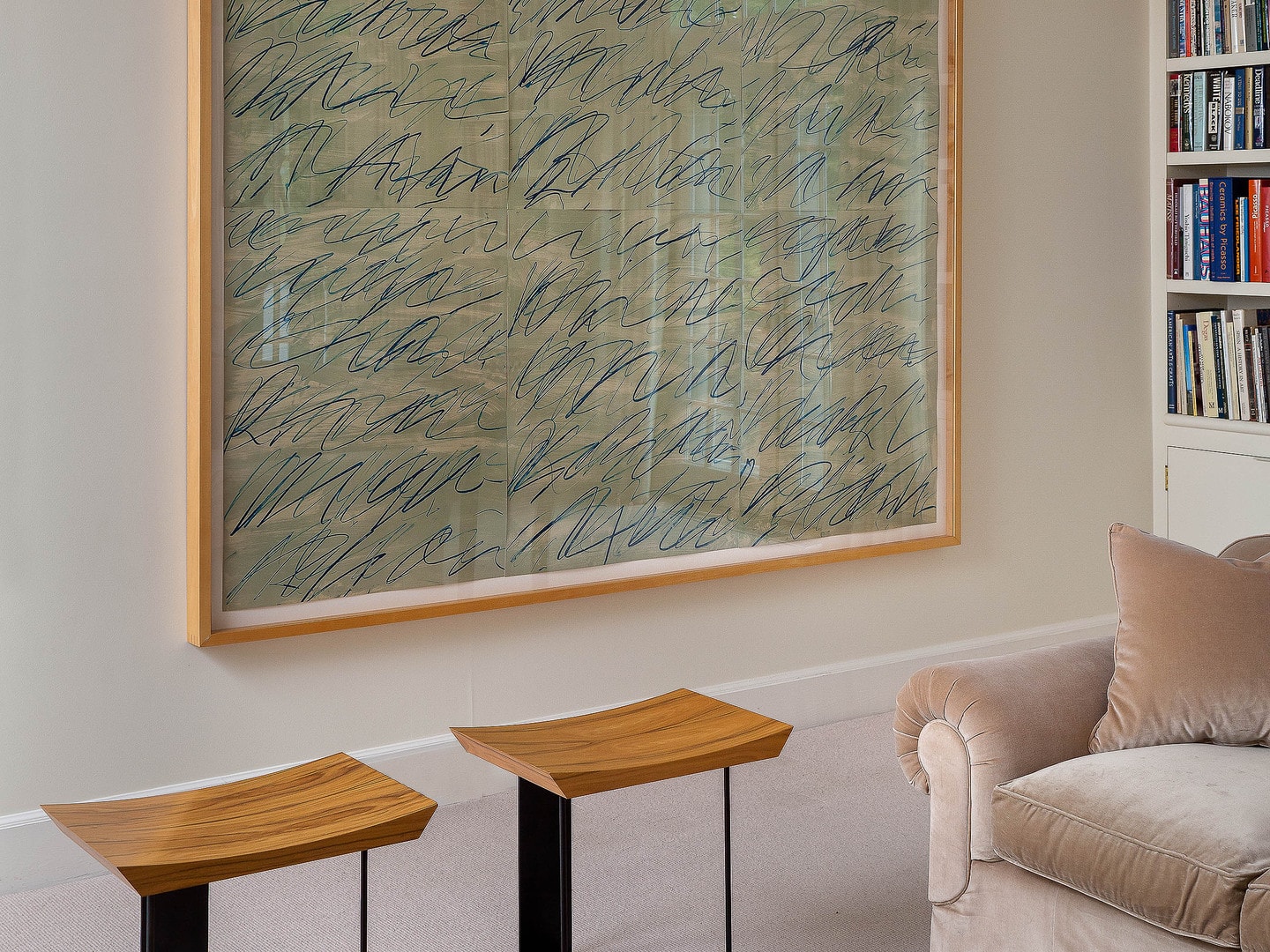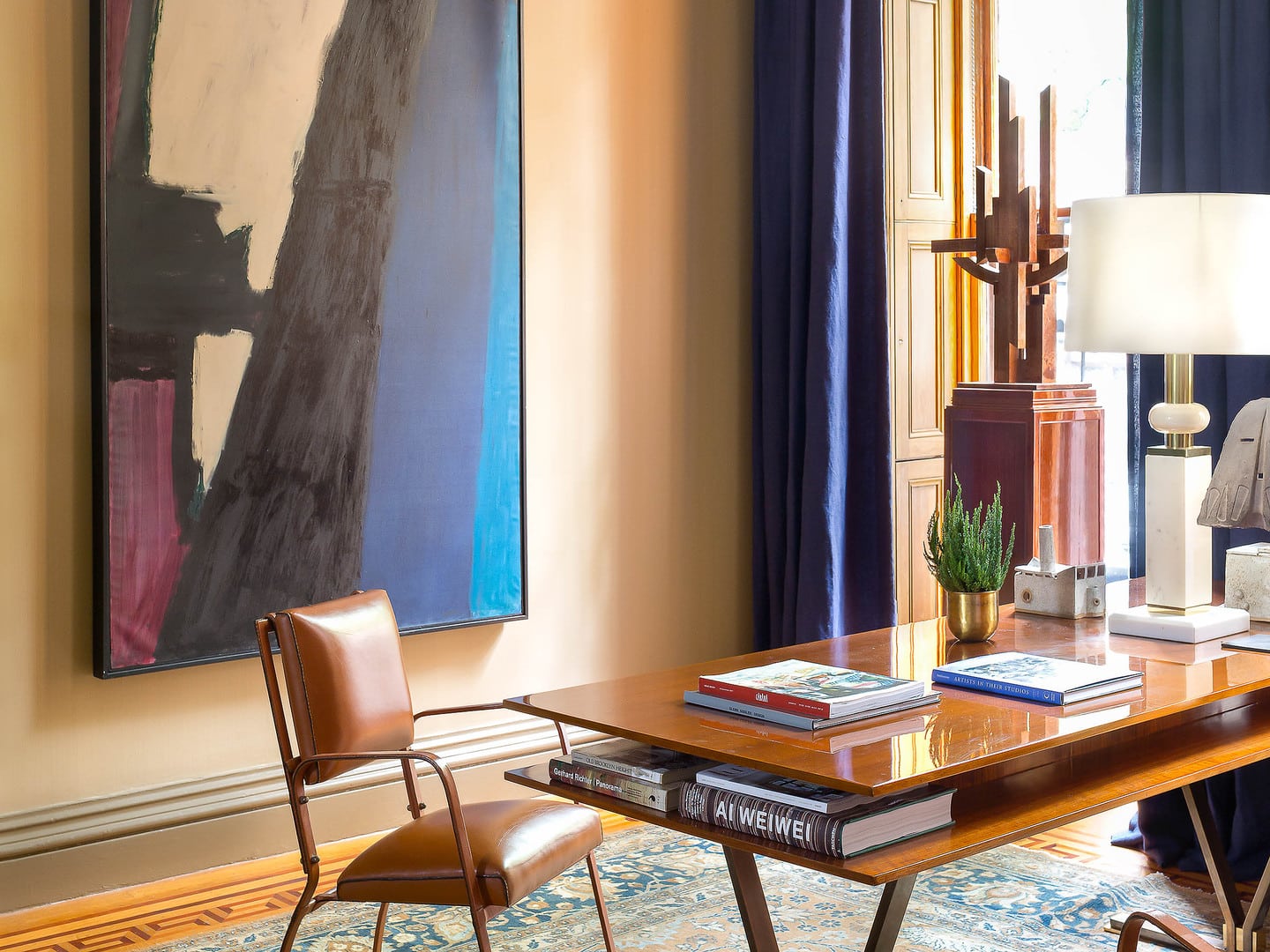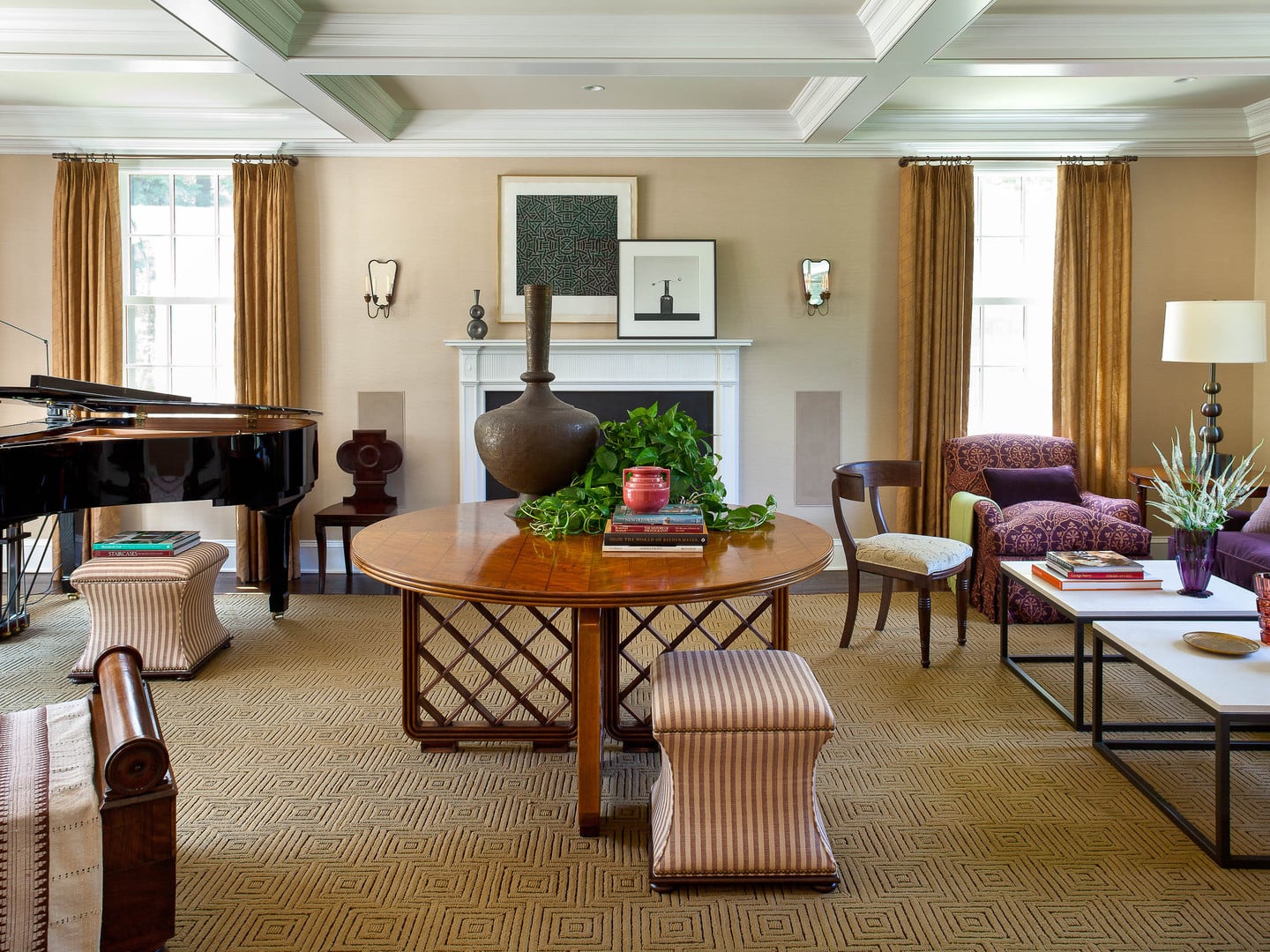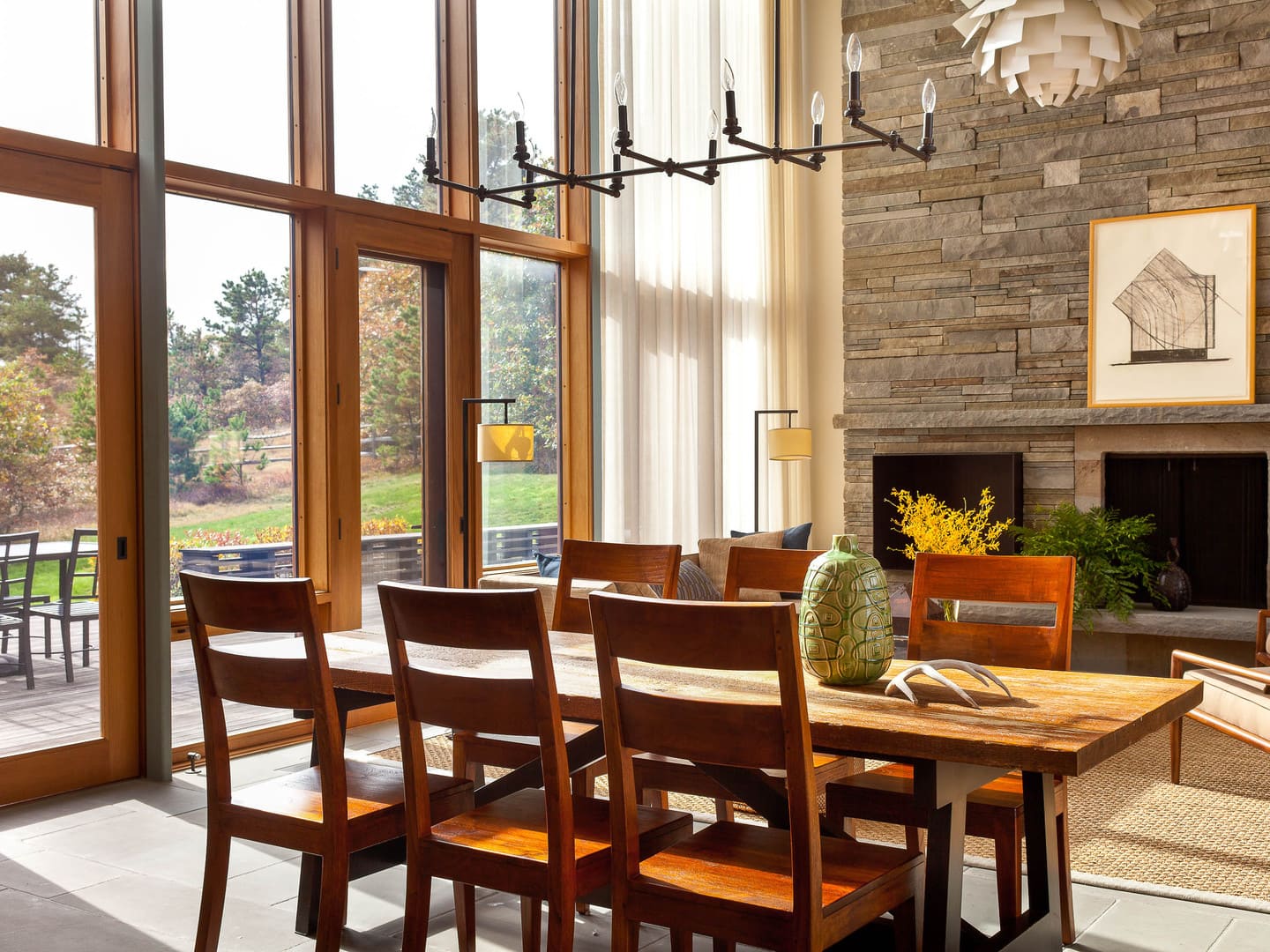The 30-foot living room’s palette of creams, browns and silvery tones unifies the subtle mix of custom and 1940s furniture and contemporary art. A custom steel and limestone coffee table by Richard Shapiro vies with the gentler curves of the “Breck” sofa from Jonas Upholstery and the “Vermeer” end table from Nancy Corzine.
UPPER EAST SIDE – NYC
Family Apartment
Originally this eleven room apartment was two apartments in a building designed in 1923 by architect Mott B. Schmidt on Manhattan’s Upper East Side off Park Avenue. The co-op had several beautifully proportioned rooms and 110 feet of southern exposure. The clients, a family, sought a design for the interior that would be both livable and stylish.
The spare yet luxurious Neo-classicism of French 1940s design appealed to these collectors of contemporary art. They also had inherited a collection of American furniture and decorative arts. The designer’s brief was to achieve an airy, spacious aesthetic in the public rooms, while integrating the family’s earlier furniture and art into the cozier private space of the master bedroom.
In every space, works of fine and decorative art–mostly twentieth century– initiate us into the careful layering of eras and textures which characterizes the apartment as a whole. As well as French 1940s pieces, the residence features custom furniture of the highest quality. The meticulous detailing of architecture and fixtures throughout the apartment attains a high level of quality, materiality and finish. It is a home for art lovers, as comfortable as it is beautiful.
The upholstered furniture is tailored but welcoming, covered in warm-hued fabrics—greens, beiges, and purples—that use texture or unassertive pattern to create additional visual interest. Tables, chairs, and case goods in solid dark-stained wood offer strong, graphic silhouettes. Walls are painted in warm and soothing, yet art-friendly shades of taupe.
In the entry hall, gleaming dark wood floors contrast with a custom interpretation of a Gio Ponti rug of 1954, made originally in cowhide, now handmade by Martin Patrick Evan. Large photograph of a rough, peeling wall is by German artist Frank Thiel; the large work on paper at left is by Julian Schnabel. Glass and brass light fixtures are custom, from Daniel Berglund.
In another corner of the living room, the furniture is assertively midcentury modern. The splendid, massive library table is 1940s French, of limed oak, complemented by Russell side chairs from Dessin Fournir, upholstered in olive leather. A strong sculptural note is architects Herzog & de Meuron’s solid birch “Hocker” stool, a contemporary classic which echoes the forms of African art.
An Italian fruitwood cabinet, c. 1927, by Gio Ponti and Emilio Lancia is the setting for a Louise Bourgeois drawing presented on an easel. Elegant plain curtains in Holly Hunt’s “Colonial Pewter” fabric frame the tableau for these Modernist icons. Scandinavian ceramics complete the vignette.
The superbly proportioned Library is enveloped in the warmth created by the soft browns, camels and ambers of the wools and leather used for upholstery, rug and curtains. There is hint of the safari lodge in the stylized tiger design of the custom wool carpet and the tropical hardwoods of the furniture. The brass chandelier, by Sarfatti, is Italian, from the 1950s.
A collection of white-glazed Chinese pottery graces an antique secretary – a family heirloom. The custom wool and silk rug from Tai Ping, is woven to resemble a needlepoint pattern. The crisply pleated curtains are in “Palazzo Check” from Holly Hunt; the custom strie wallpaper is from Farrow & Ball. More family heirlooms, a Queen Anne chair and footstool, complete the space.

